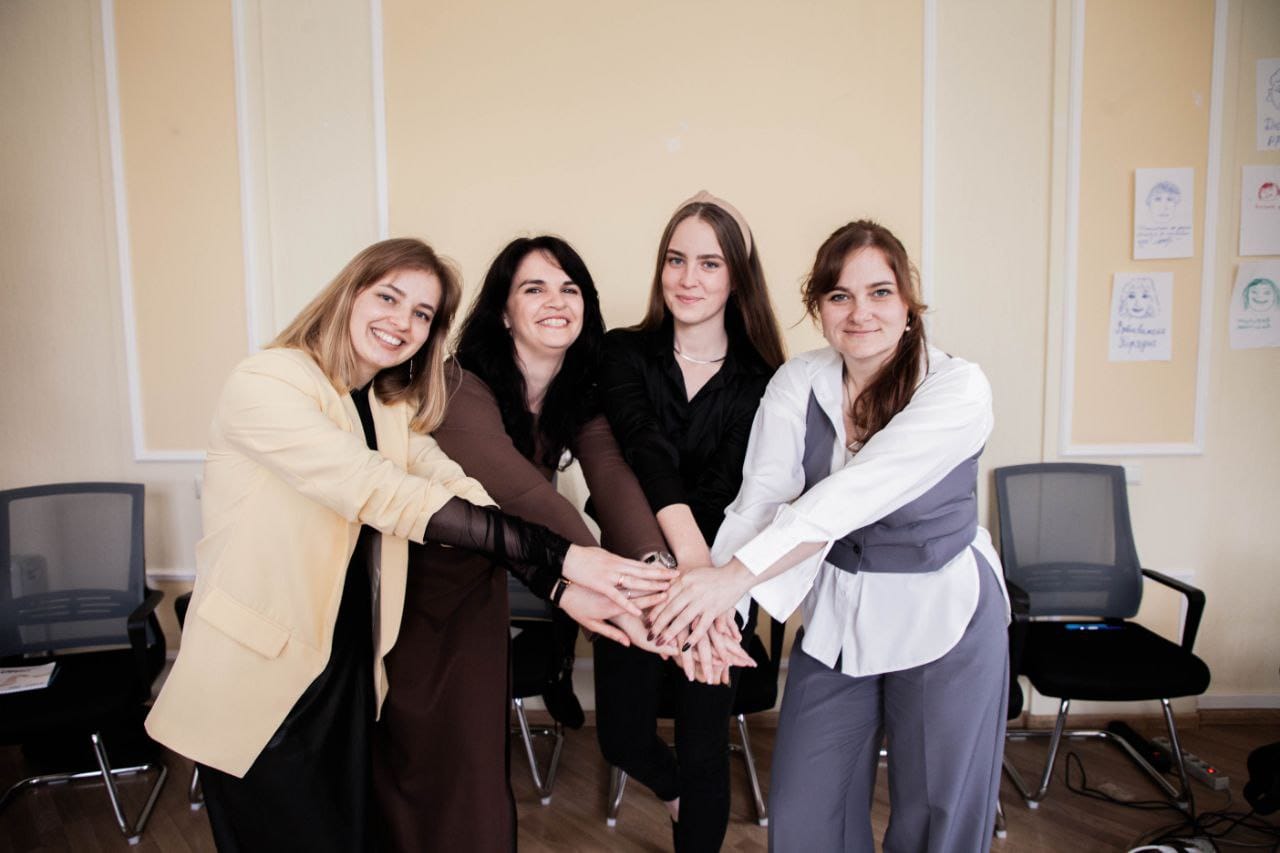This website uses cookies so that we can provide you with the best user experience possible. Cookie information is stored in your browser and performs functions such as recognising you when you return to our website and helping our team to understand which sections of the website you find most interesting and useful.
Vyshniv Territorial Community
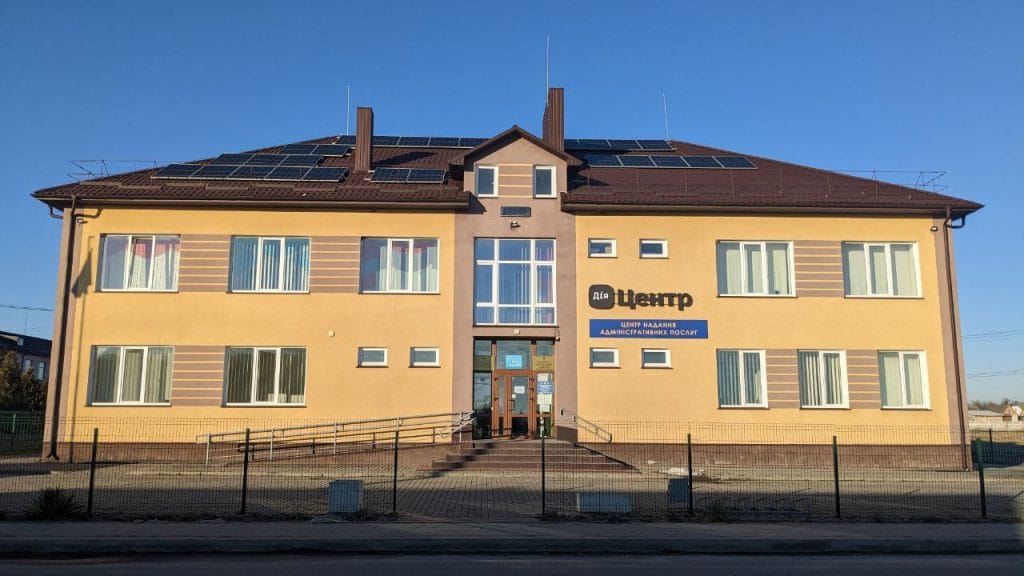
The Vyshniv rural territorial community is located on the territory of Kovel district, Volyn region.
The total area of the territory: 49,847.3073 hectares.
Population: 8,049 people
Men: 2,331
Women: 2,454
Children: 1,429
People of retirement age: 1,835
Internally displaced persons: 150
The community includes 21 population centers and has its administrative center in the village of Vyshniv.
History
The first mention of Vyshniv in historical documents dates back to 1510 and there is also a mention of the church in the same year. There are 2 versions about the origin of the name of the administrative center of the community: according to the first one, the village has such a name because it drowns in cherry orchards (Ukrainian “vyshnia” translates “cherry” into English); according to the second one, Mr. Vyshnivskyi founded the village and resided here.
A wooden church built in 1868 in honor of Saints Kuzma and Demyan has been preserved in Vyshniv. The church was partially damaged during the Second World War, but after its end it was restored. During the Soviet rule, they tried to close the church and turn it into a warehouse, but the community did not allow it. In 2015, the 150th anniversary of the temple (since 1865) was celebrated.
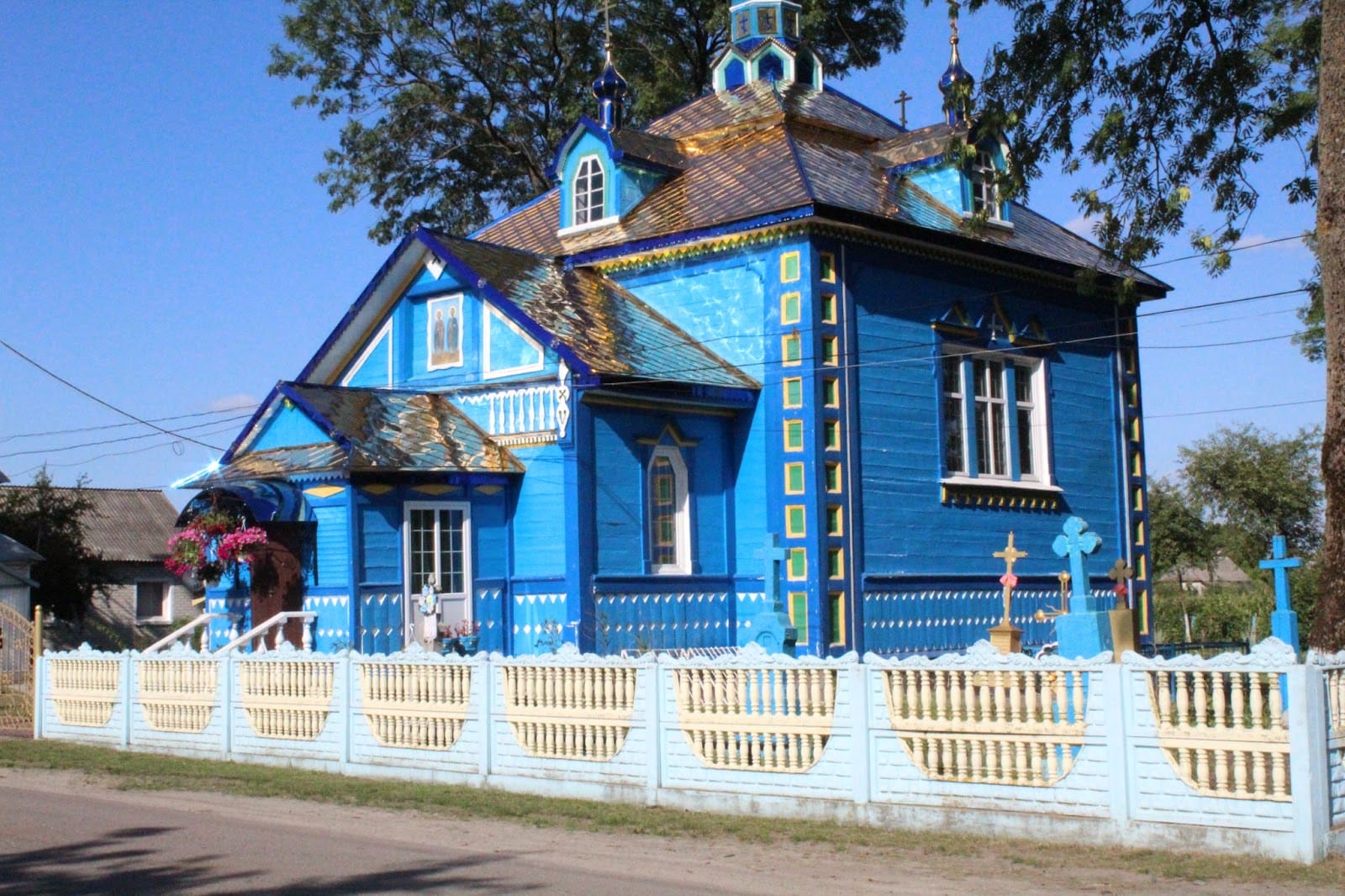
The Church of the Holy Spirit was built in 1889. In the 1950s and 1960s, the Soviet government closed many churches, but the church in the village of Olesk was active all the time.
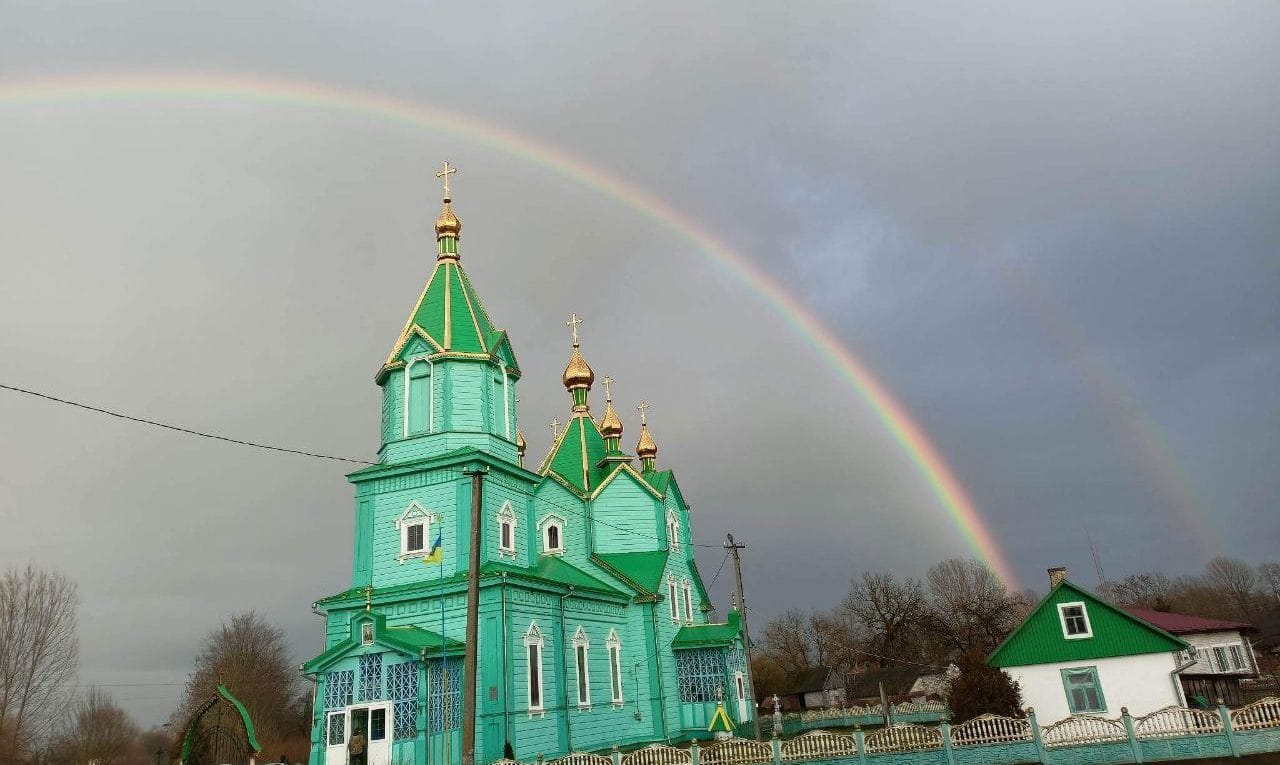
The Church of the Nativity of the Holy Mother of God is a wooden church built in 1884 at the expense of the parishioners. It was built on a stone foundation together with the bell tower. The construction of the temple took five years.
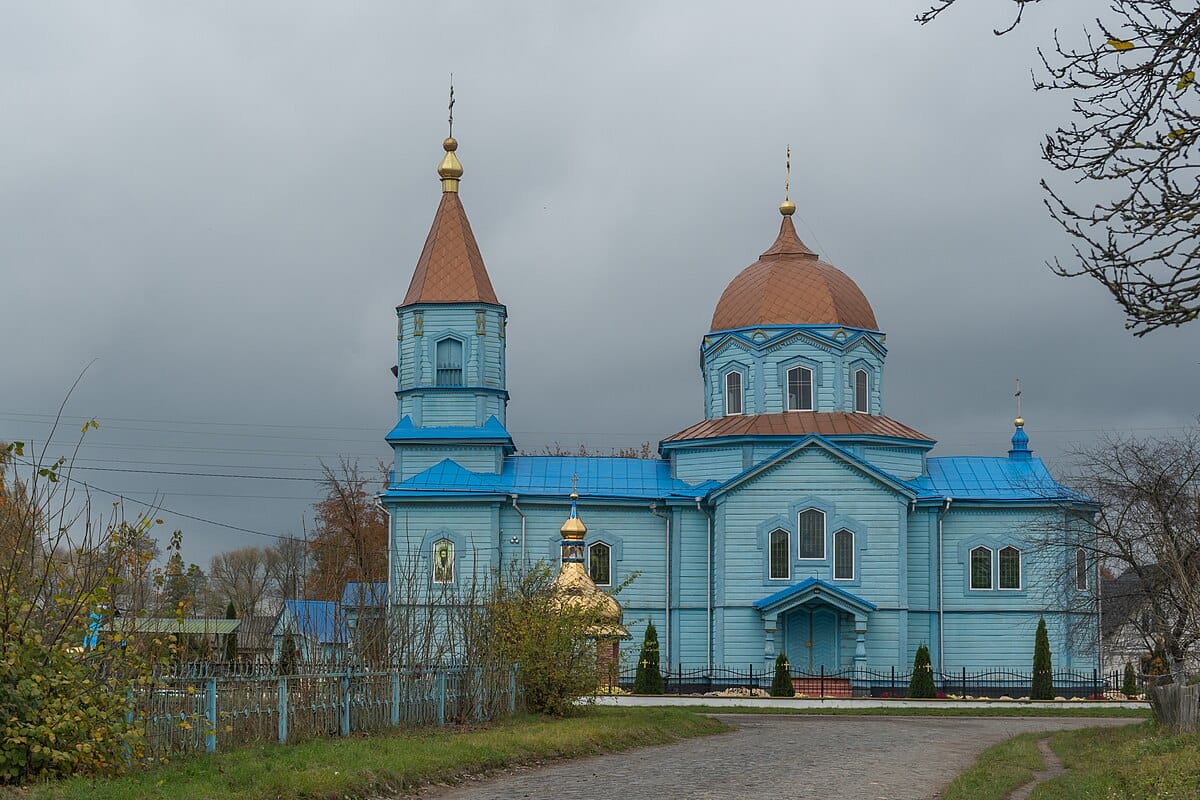
The Assumption Church in Radekhiv is one of the most important attractions of the region. This is an architectural monument of national importance. The temple was built in 1701 as a church of St. Michael of the Augustinian Catholic Monastery. In 1952, it was removed from the register and closed. The building was in disrepair, but was used as a collective farm warehouse. Only in December 1990, the parishioners resumed the activity of the Holy Assumption community and within a few years restored the church, the oldest building in the village. The restoration was completed in 1993.
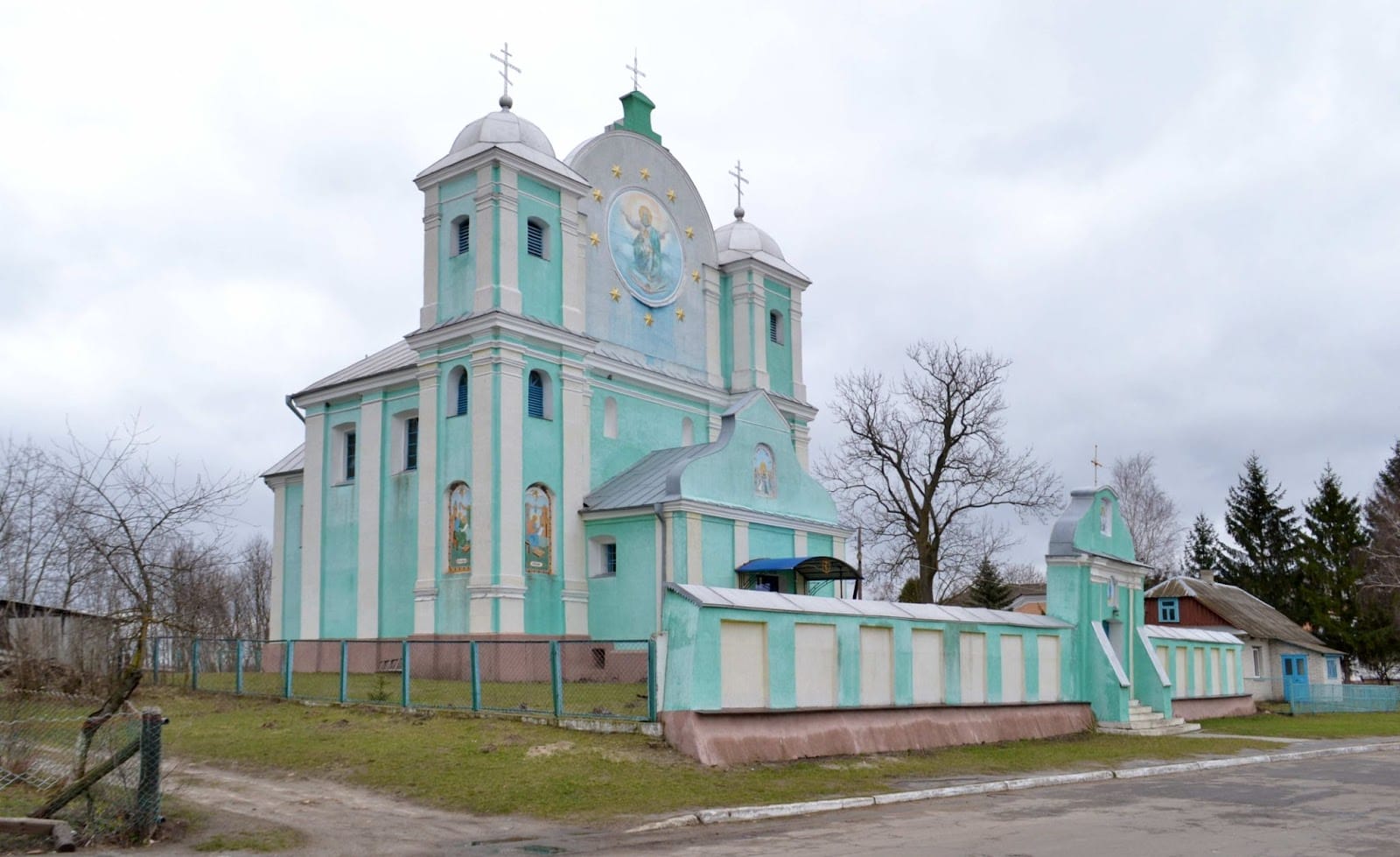
The Church of St. Isidore the Laborer is a Roman Catholic church in the village of Rymachi in the Liubomyl district, built in 1931-1933. After the Second World War, the church was closed by the Russian authorities, at different times it housed a club, a mill and a warehouse. After Ukraine regained independence, a Roman Catholic community was registered in Rymachi, and the church was partially renovated.
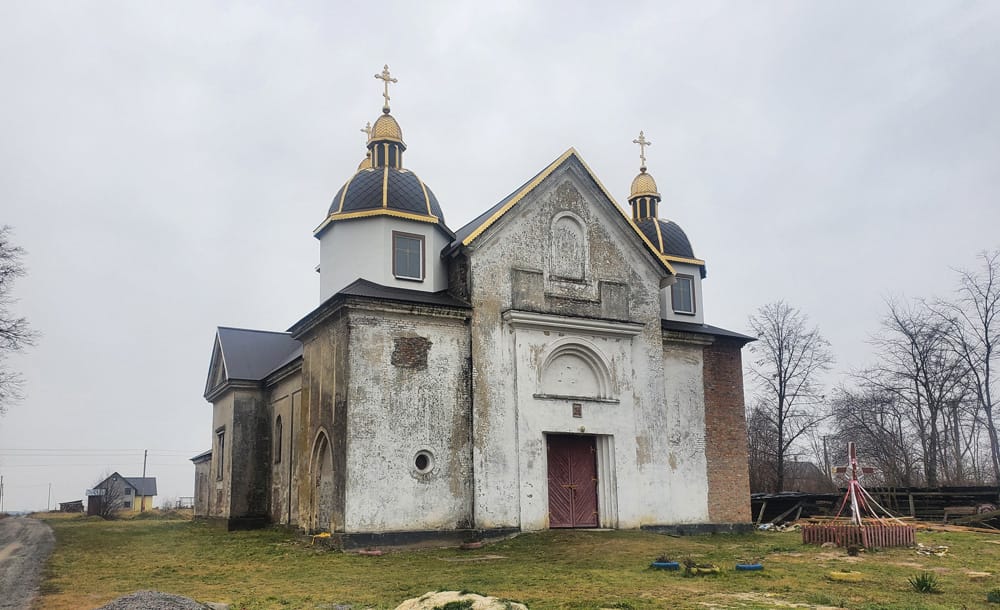
Economy and Welfare
The Vyshniv community enjoys a favorable geographical location in the west of the Volyn region and borders the Republic of Poland. A highway of international importance passes through the community.
The Vyshniv community is an agrarian territory, since agricultural lands make up 50% of its total area. Therefore, the main part of local business is represented by farms that grow grain, oil and leguminous crops. Berry growing and gardening is also popular. Finished products are sold in Ukraine and exported abroad.
The company “WELL AGRO TRADE” is engaged in the production of soybean oil and oil cake. In a day, they are capable of processing 20 tons of soybeans – 16 tons of cake and 4 tons of oil.
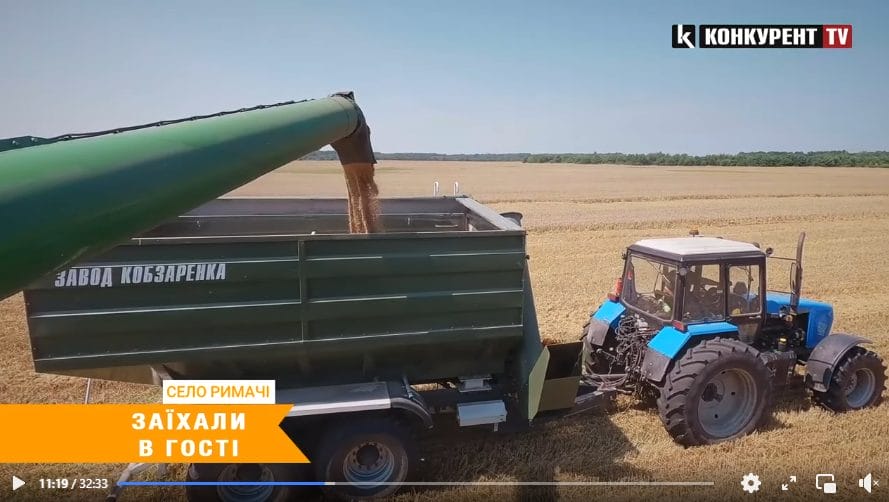
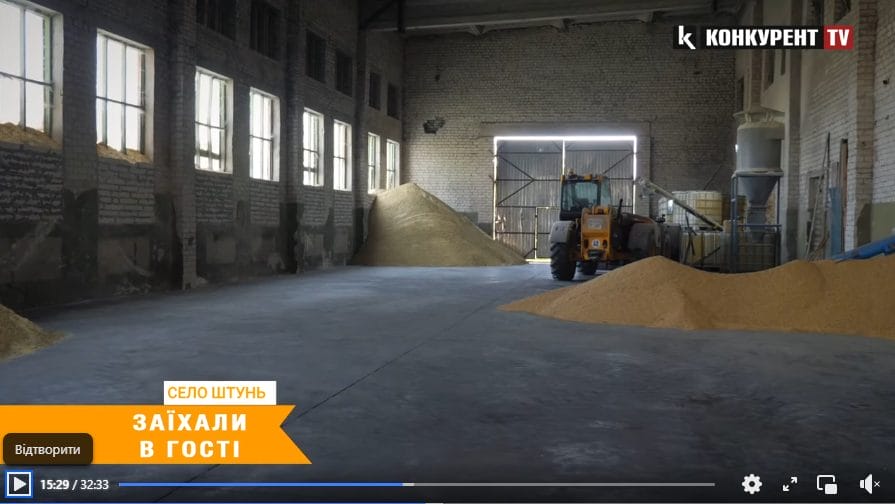
The research and production enterprise “FAKTOR” produces fuel pellets – biofuel obtained from peat, wood waste, agricultural waste or coal. Manufactured products are both sold in Ukraine and exported abroad.
The local bakery produces bread and bakery products, cakes and pastries. The products are made using modern equipment: the confectionery shop has a powerful mixer purchased in Turkey. The pride of the enterprise is two ovens for baking bread on wood, which were built by a specialist from Serbia, a rotary oven for baking elite types of bread, equipment for the production of pasta and dry dough for croissants.
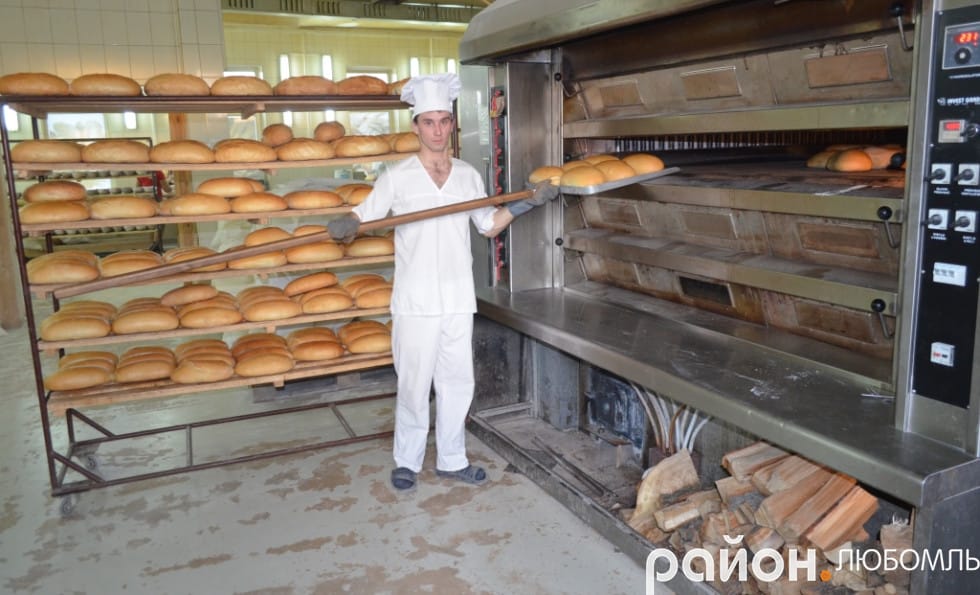
Camping “Mashivskyi Bir” – a recreational complex with an area of 3.7 thousand square meters – is located on the territory of a pine forest.
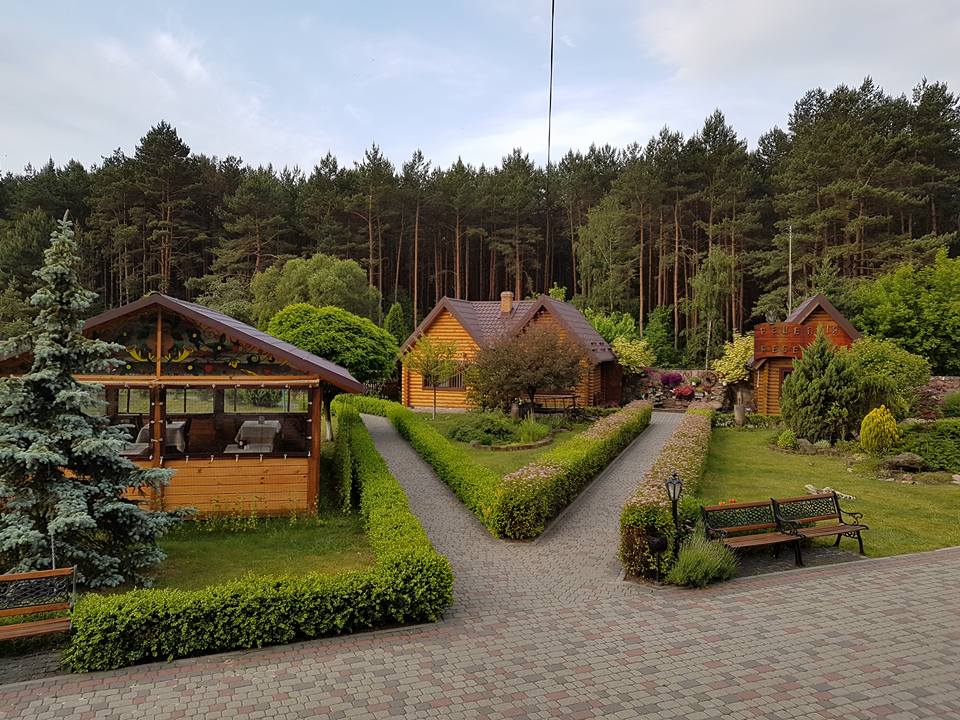
There are 9 schools, 7 preschools and the Center for Culture, Art, Aesthetic Education and Sports in the Vyshniv community.
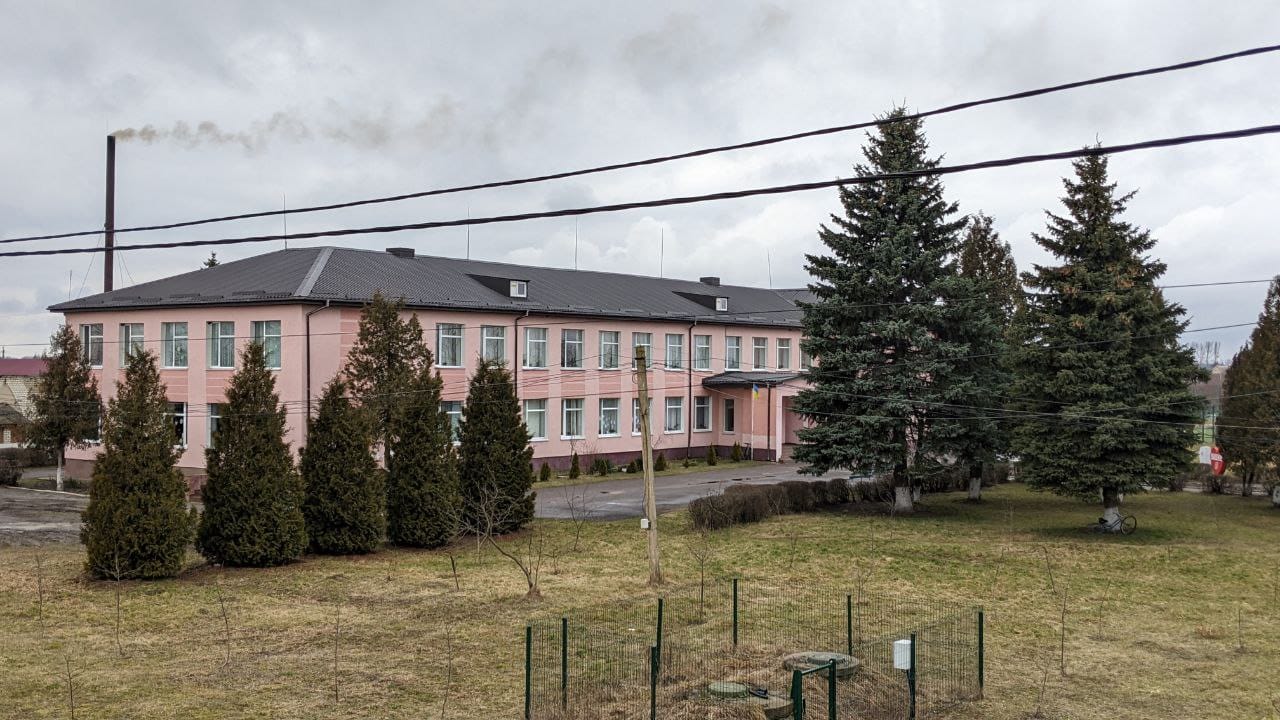
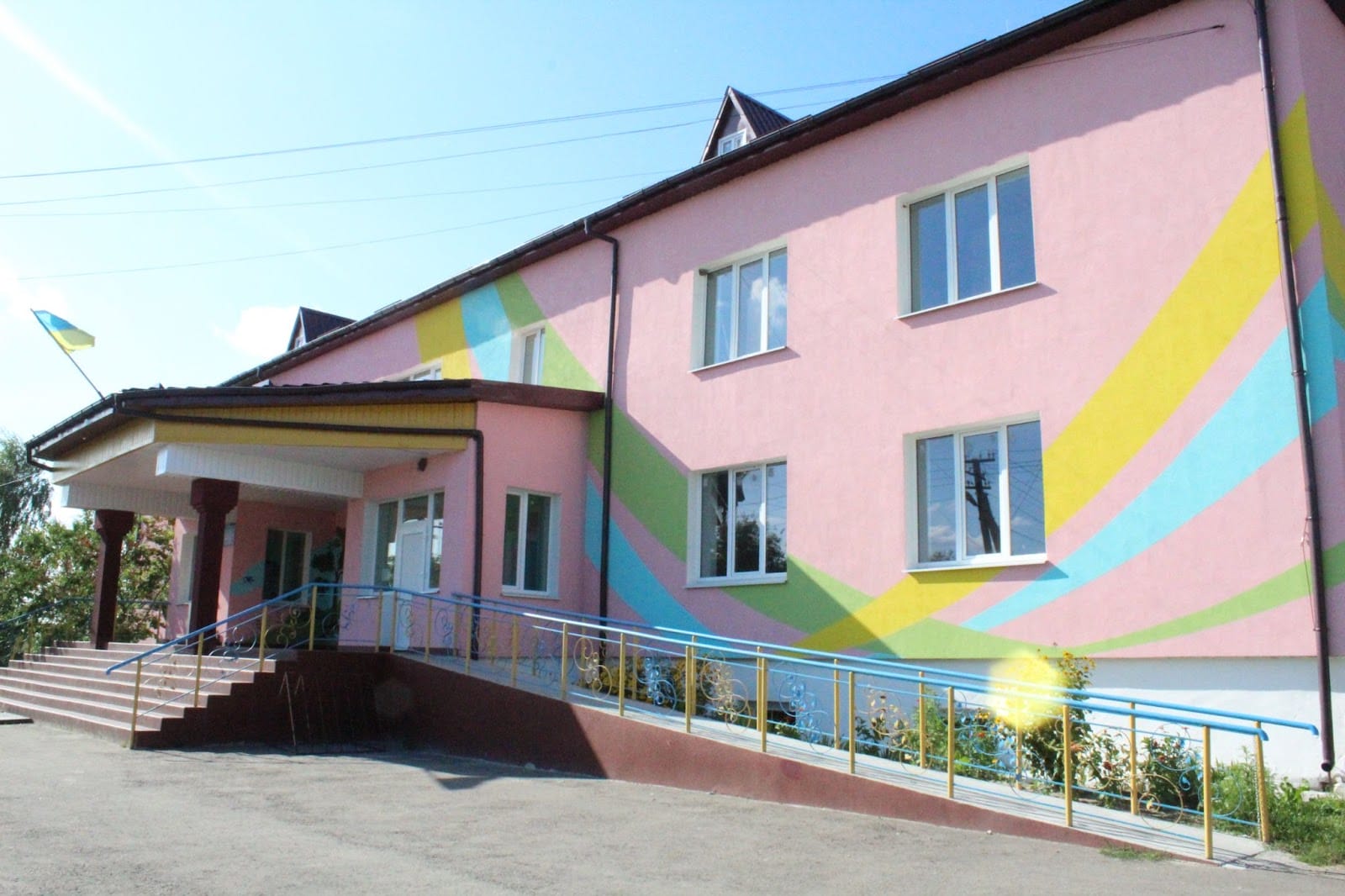
There are also 5 houses of culture, 8 clubs and 11 libraries in the community.
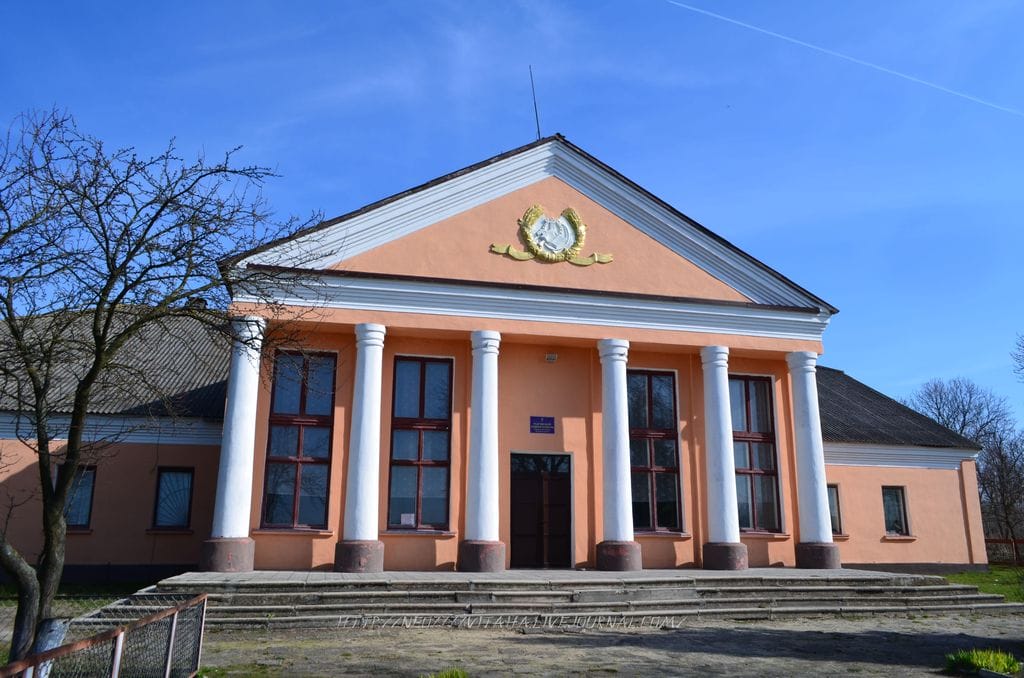
Health care services are provided by 2 outpatient clinics of the general practice of family medicine, 13 temporary medical stations and a paramedic and midwifery station.
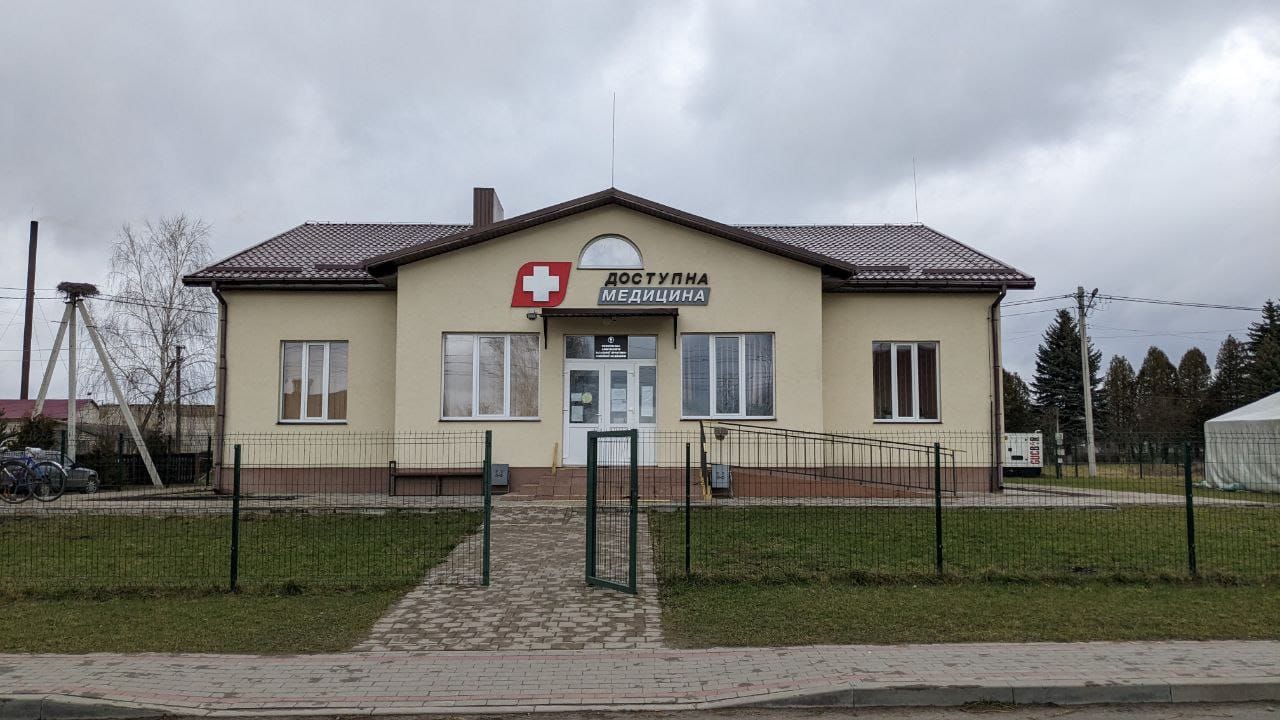
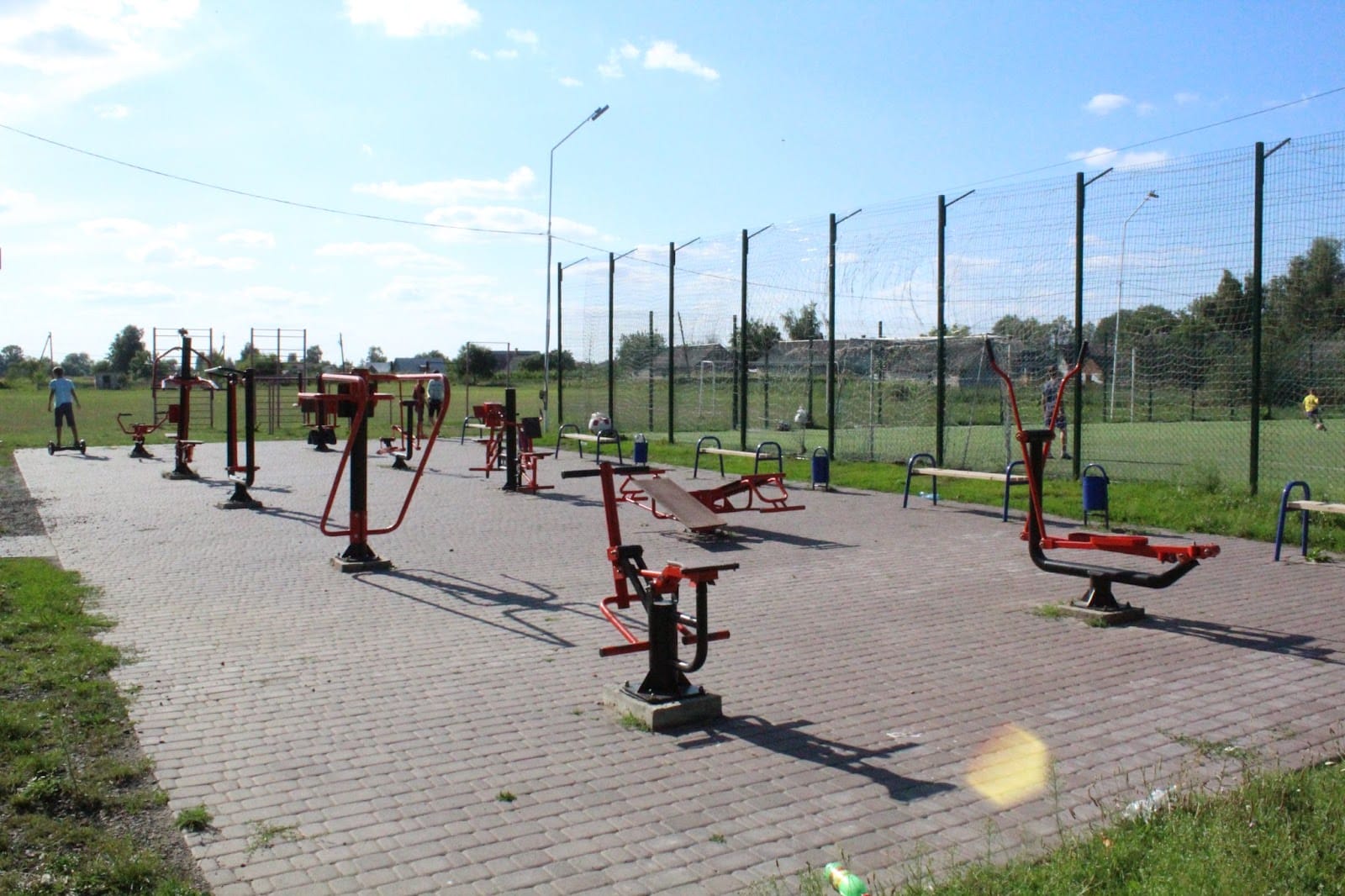
The Integration Center “Zamlynnia” is the highlight of the community. It is located in the village of Zamlynnia, near the state border of Ukraine and Poland. The center was created for the integration of children, youth and artists of these two states. The founder of the Center is the Religious Mission “Caritas-Spes ” of the Lutsk Diocese of the Roman Catholic Church.
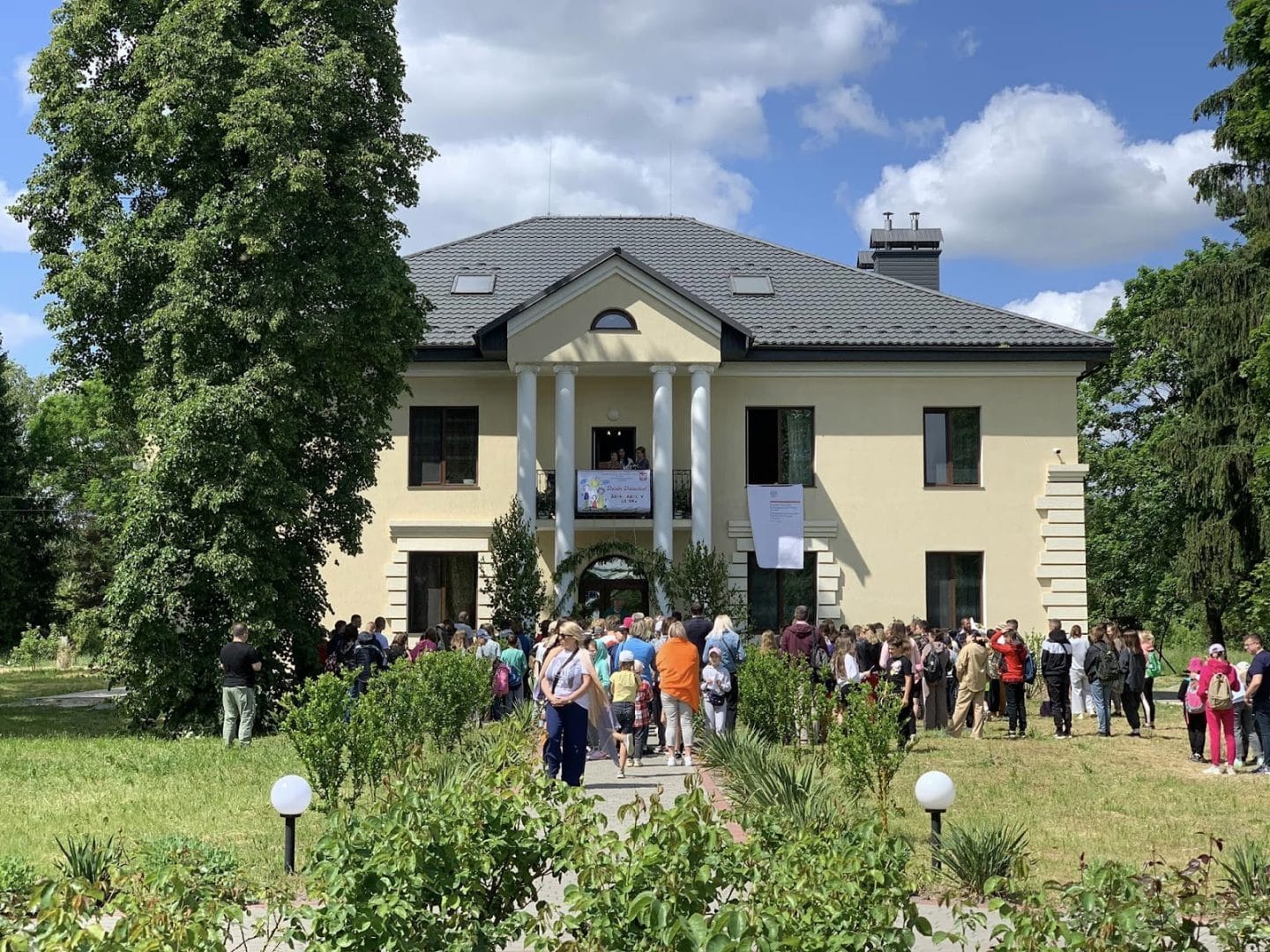
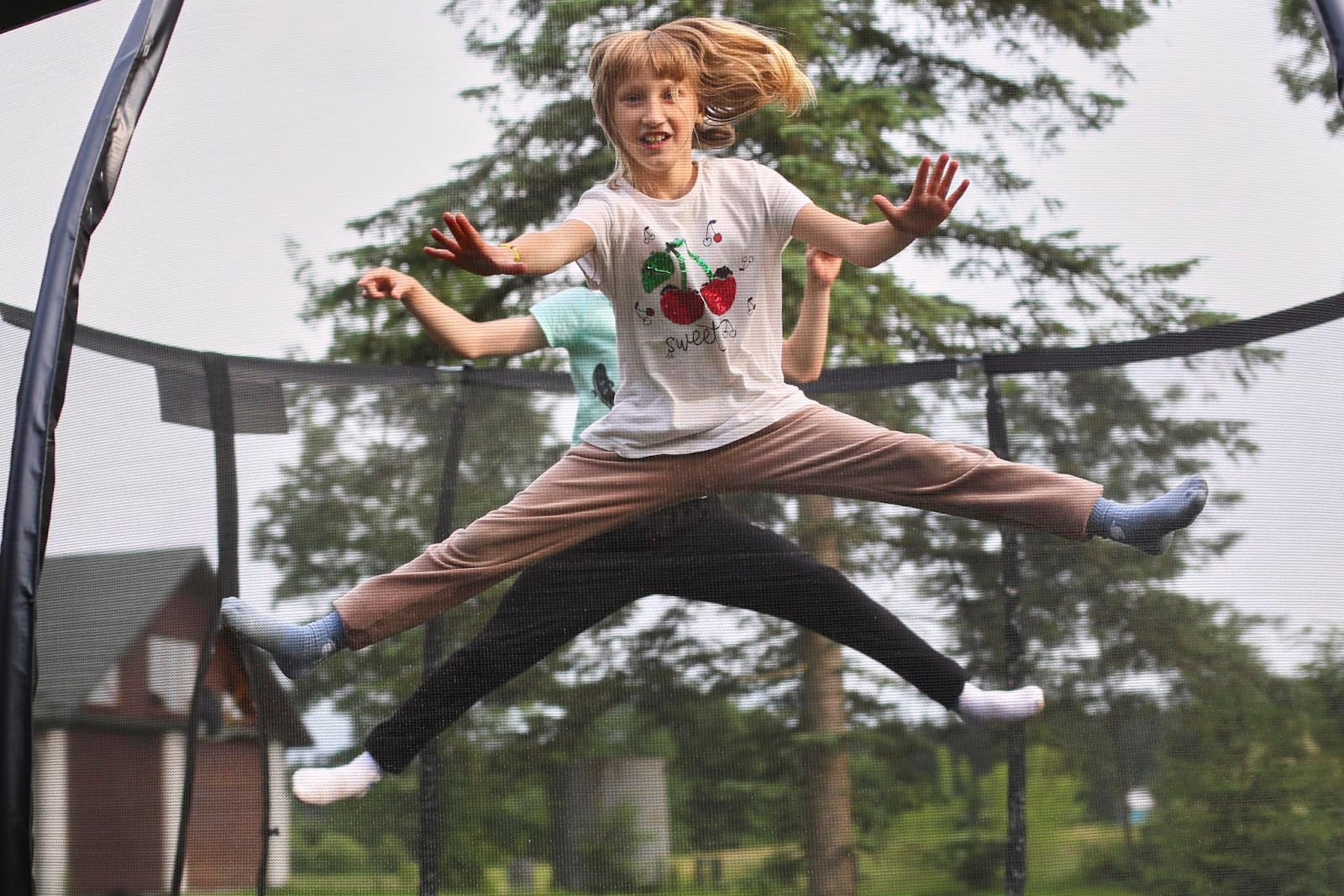
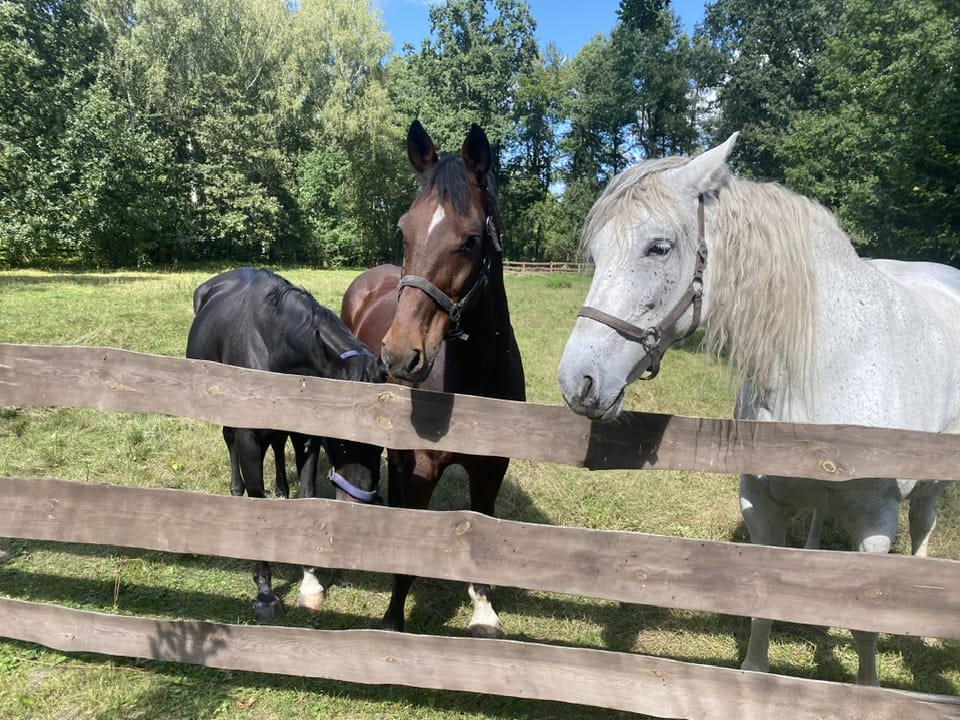
The citizens’ activity center is a space equipped with special technical equipment and furniture, where community residents have the opportunity to gather and discuss current issues. It is used for trainings, seminars, workshops, webinars and other activities. The center was opened thanks to the E-Governance for Accountability and Participation Program (EGAP), financed by Switzerland and implemented by the Eastern Europe Foundation in cooperation with the Ministry of Digital Transformation of Ukraine and the Innovabridge Foundation.
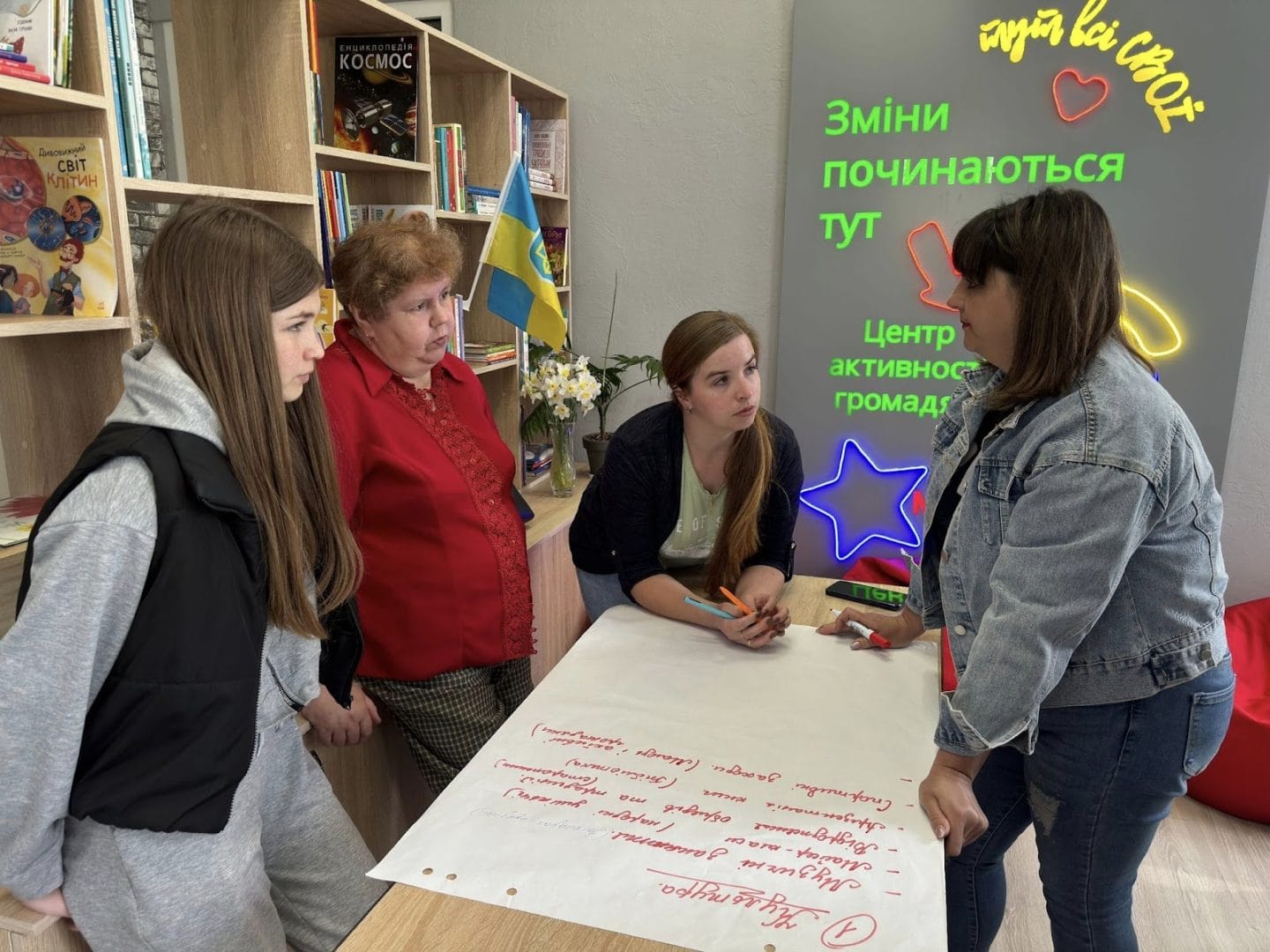
The Public Space “Free Thought” is a venue for interaction and public activity, establishment of government-public communication, search and joint planning of implementation of ideas regarding community development, conducting social cross-sectoral dialogue and profile activities with the participation of residents. The opening of the space became possible thanks to the victory in the competition of partner communities of the USAID HOVERLA Project for the creation of public spaces.
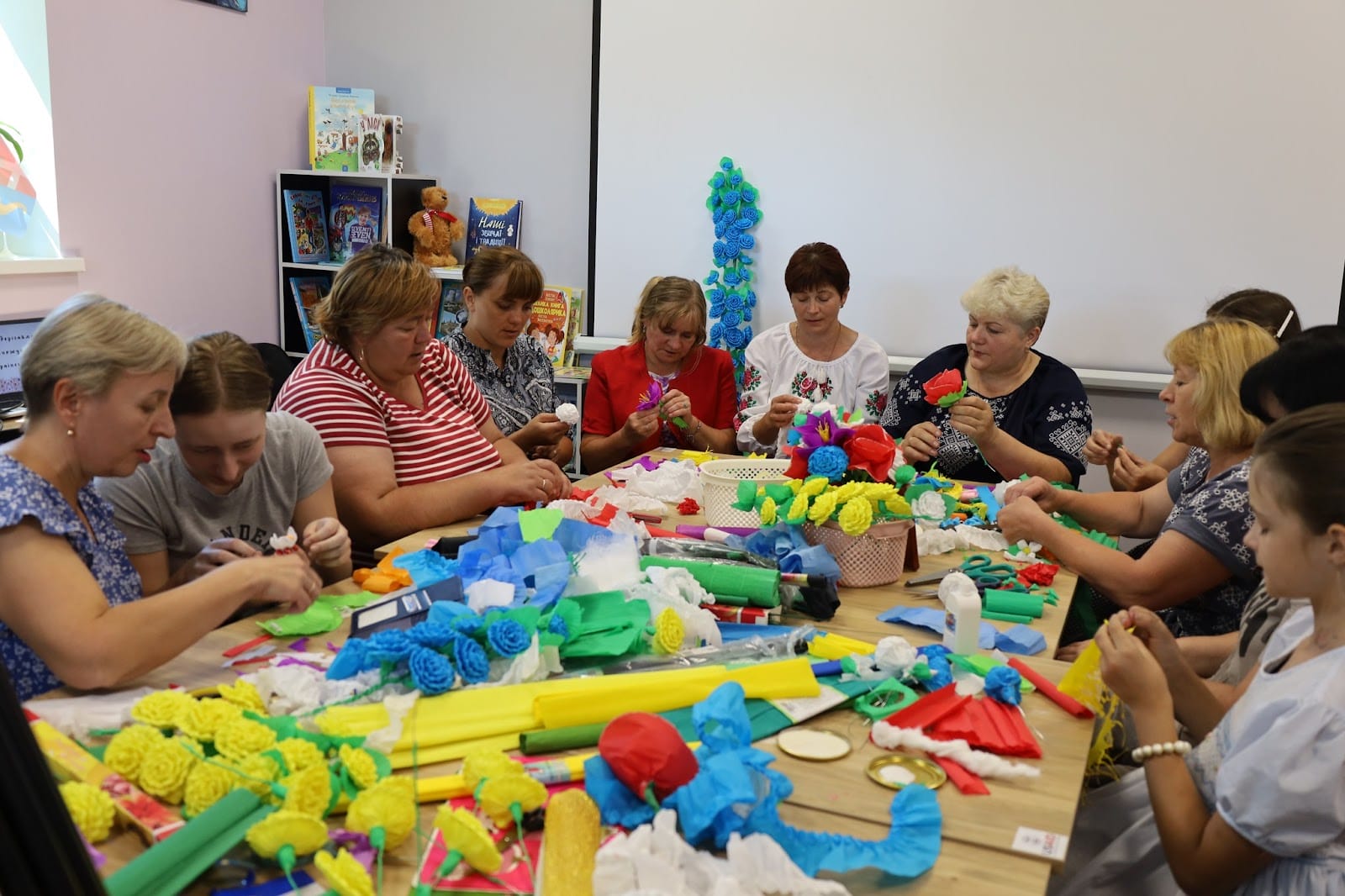
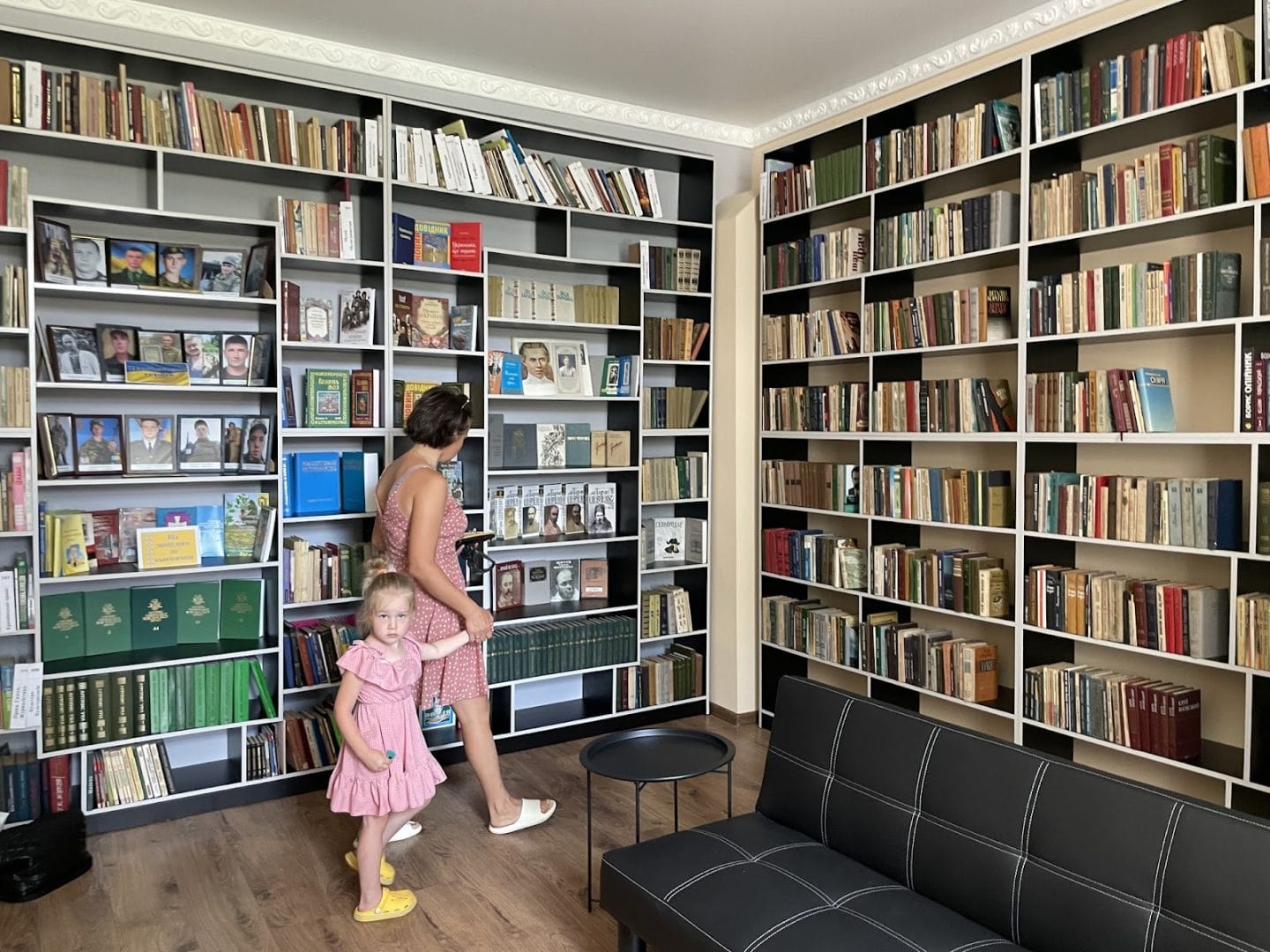
In 8 population centers of the community, modular sports grounds have been installed, where residents of the community can do physical exercises outdoors. The simulators were received thanks to the USAID HOVERLA Project.
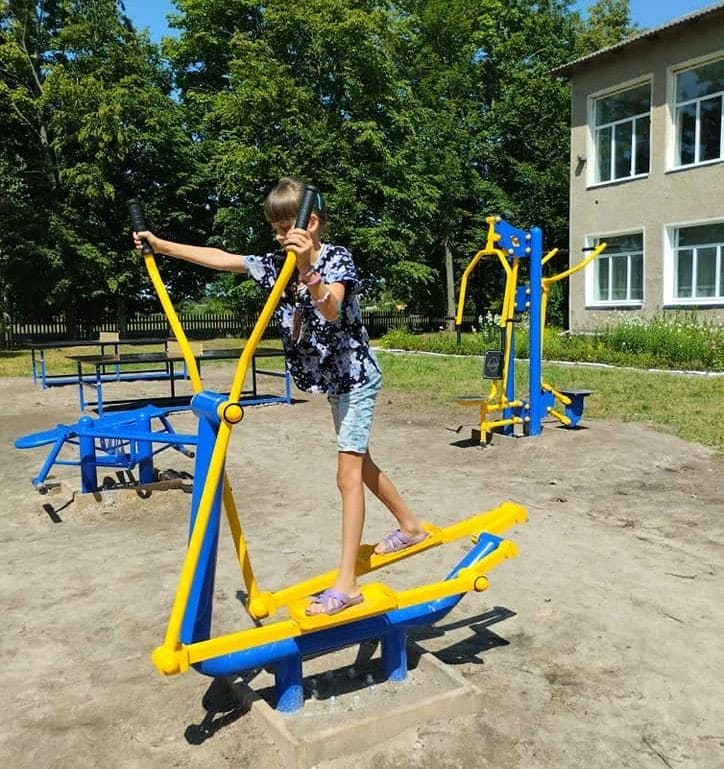
Community and War
The Vyshniv Village Council actively joins the volunteer movement in order to bring our victory closer. They constantly send parcels to defenders from the community who are now in various parts of the country to defend the state.
Among the most frequent needs are military uniforms, shoes, medical supplies, ammunition, food, hygiene products, and others. An important addition to each shipment is the drawings and products made by children who sincerely believe in their defenders and the victory of Ukraine.
In the first days of the war, a humanitarian headquarters was organized in the administrative premises of the Village Council: “sewing” and “cooking” battalions worked, which helped the military every day.
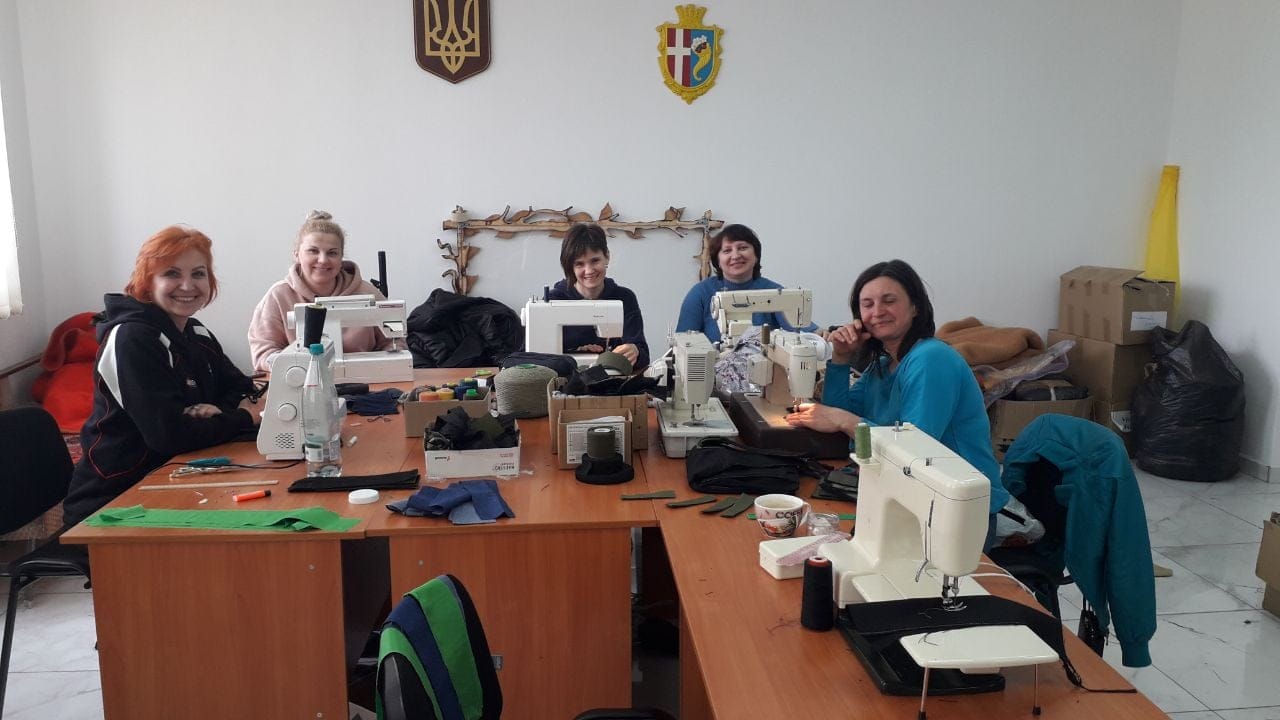
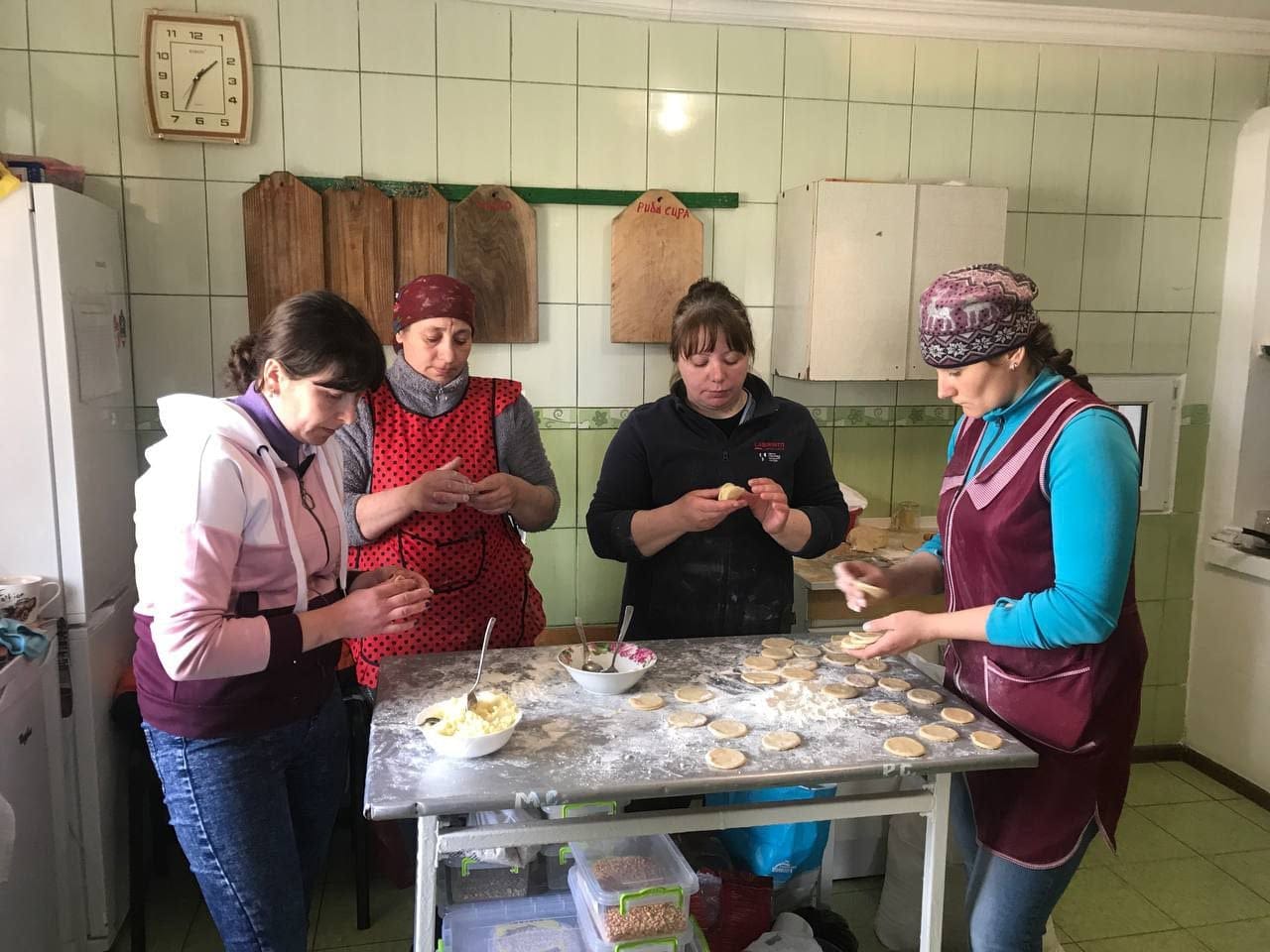
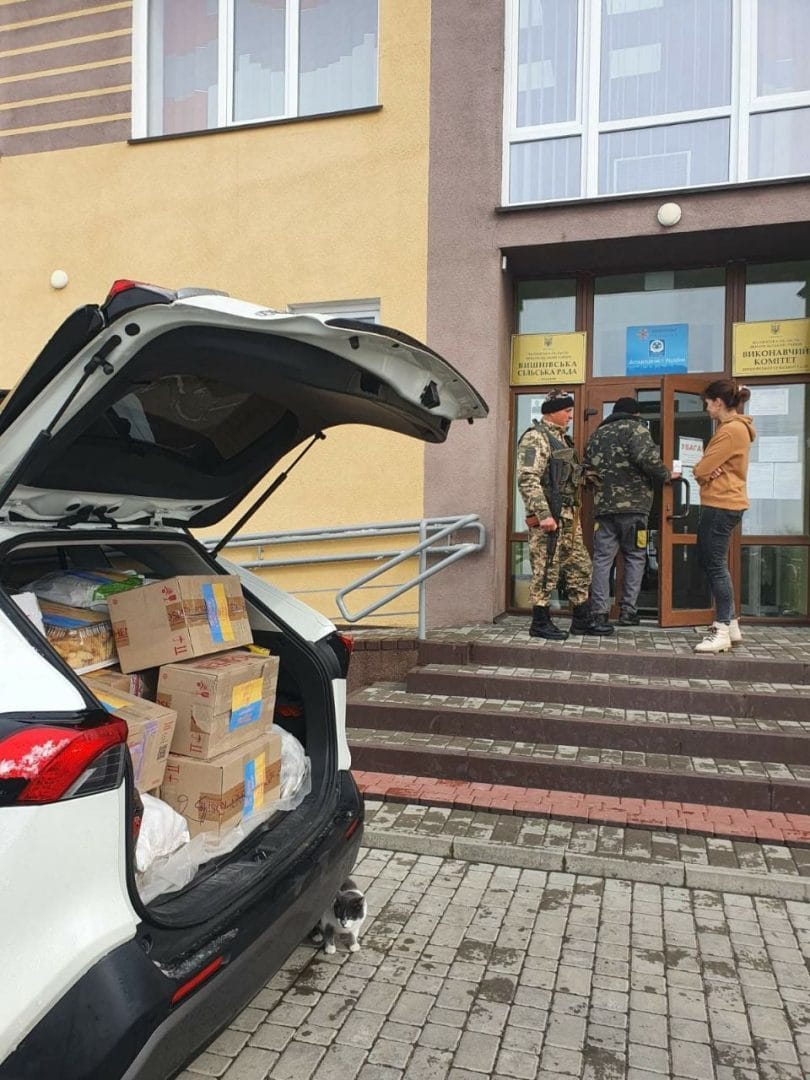
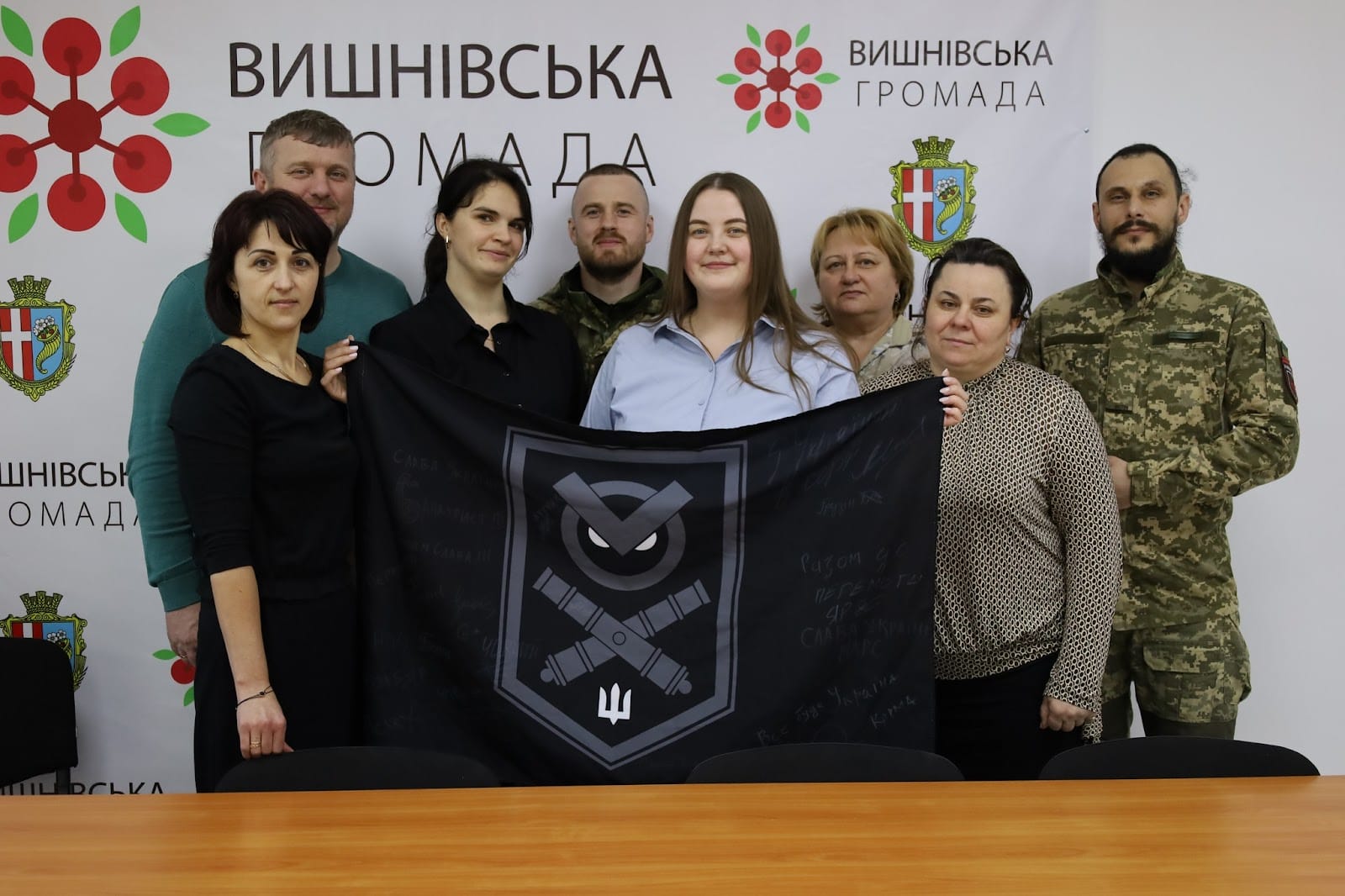
In 2023, representatives of the communal institution “Centre of Culture, Art, Aesthetic Education and Sports” organized a charity performance, with which they toured the population centers of the community. As a result, they managed to collect almost UAH 100,000 for the needs of the military.
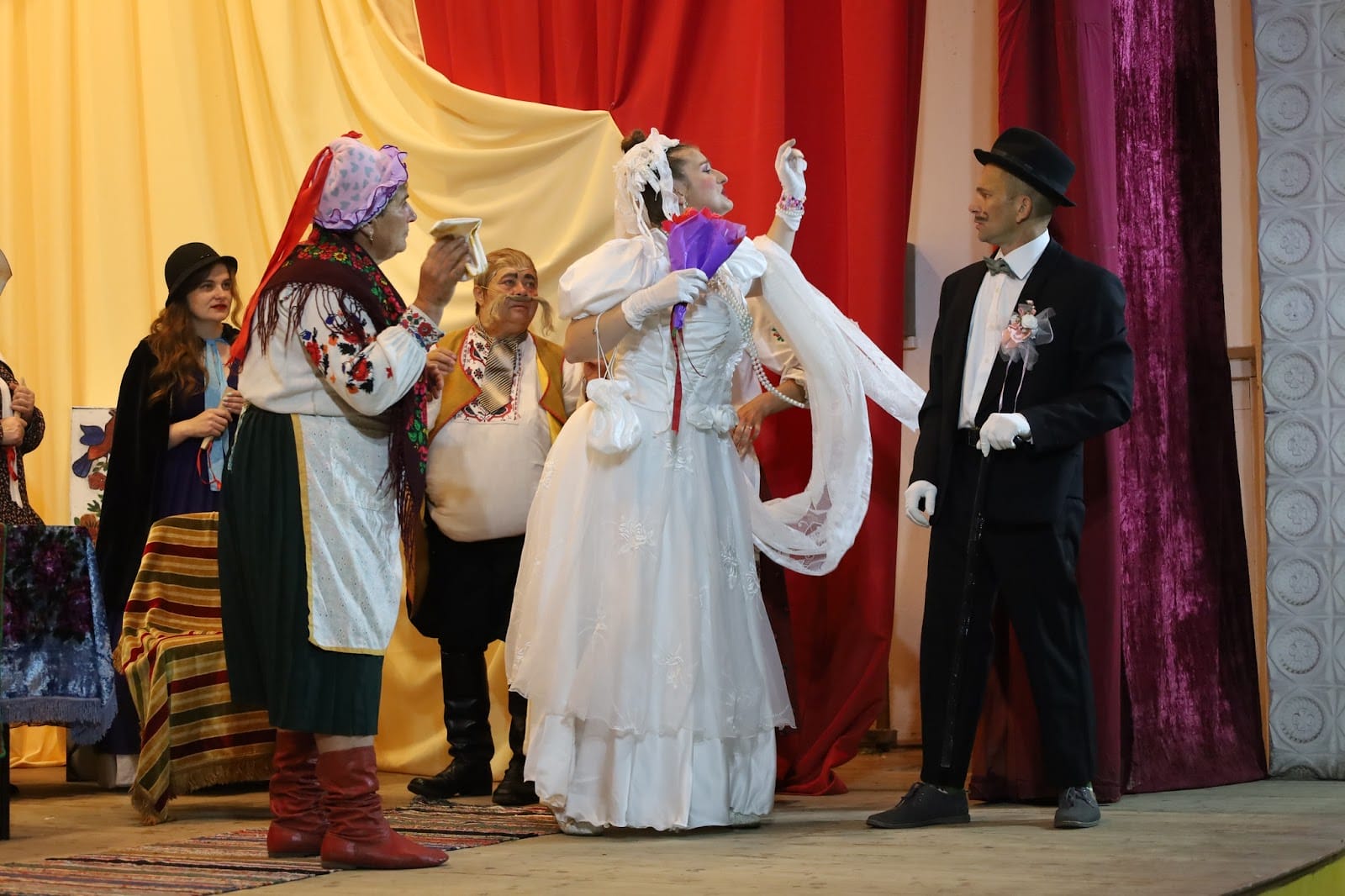
People of the Community
Viktor Sushchyk is the head of the community.

To activate the community hub in 2024, the Vyshniv Village Council took part in the project “Step towards: integration of IDPs into the cultural environment of the community” with the financial support of the Federal Ministry of Foreign Affairs of Germany. Thanks to this project, 7 events were organized that helped internally displaced persons and residents of the Vyshniv community to establish communication and learn about the culture of other regions of Ukraine.
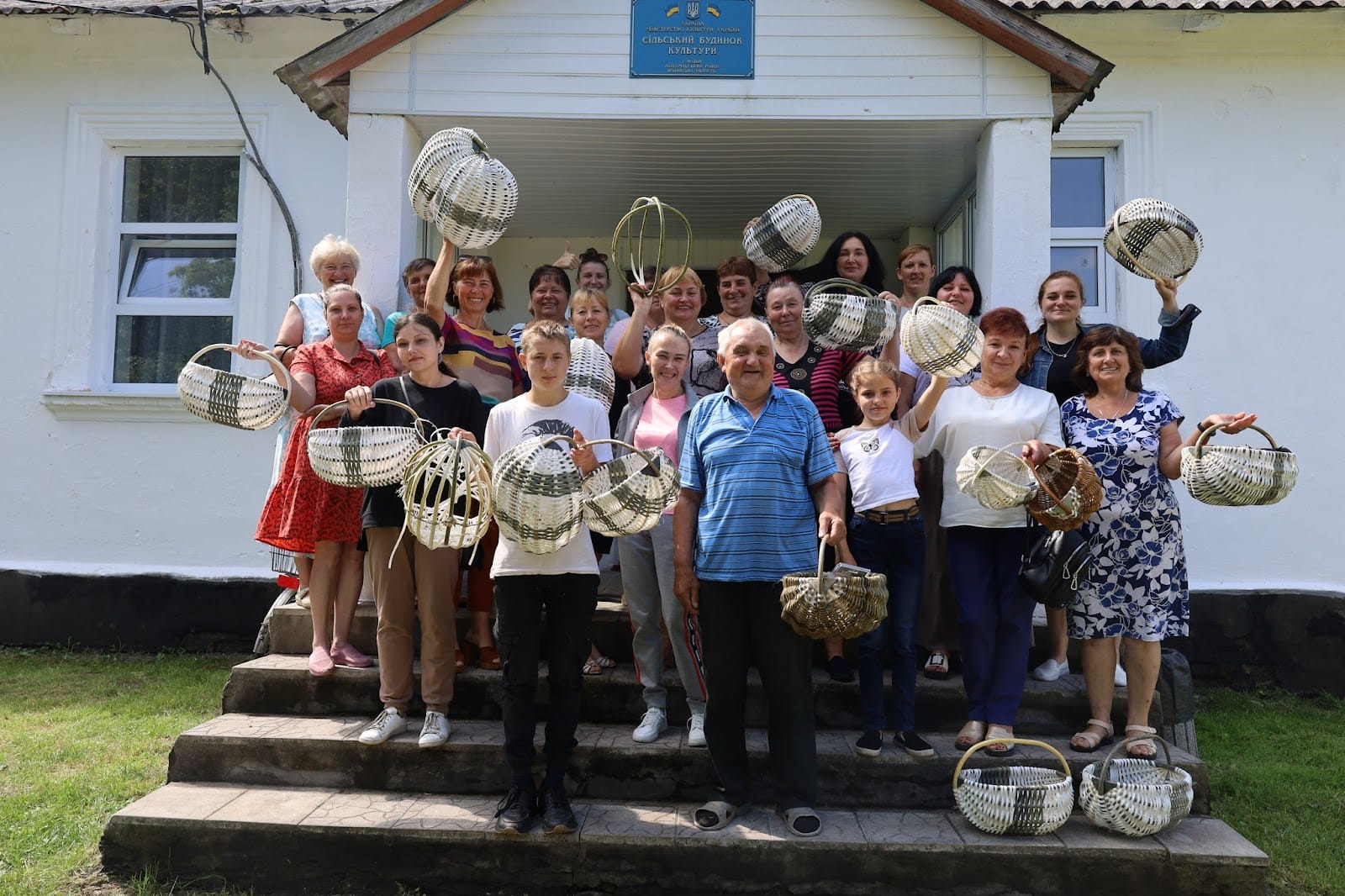
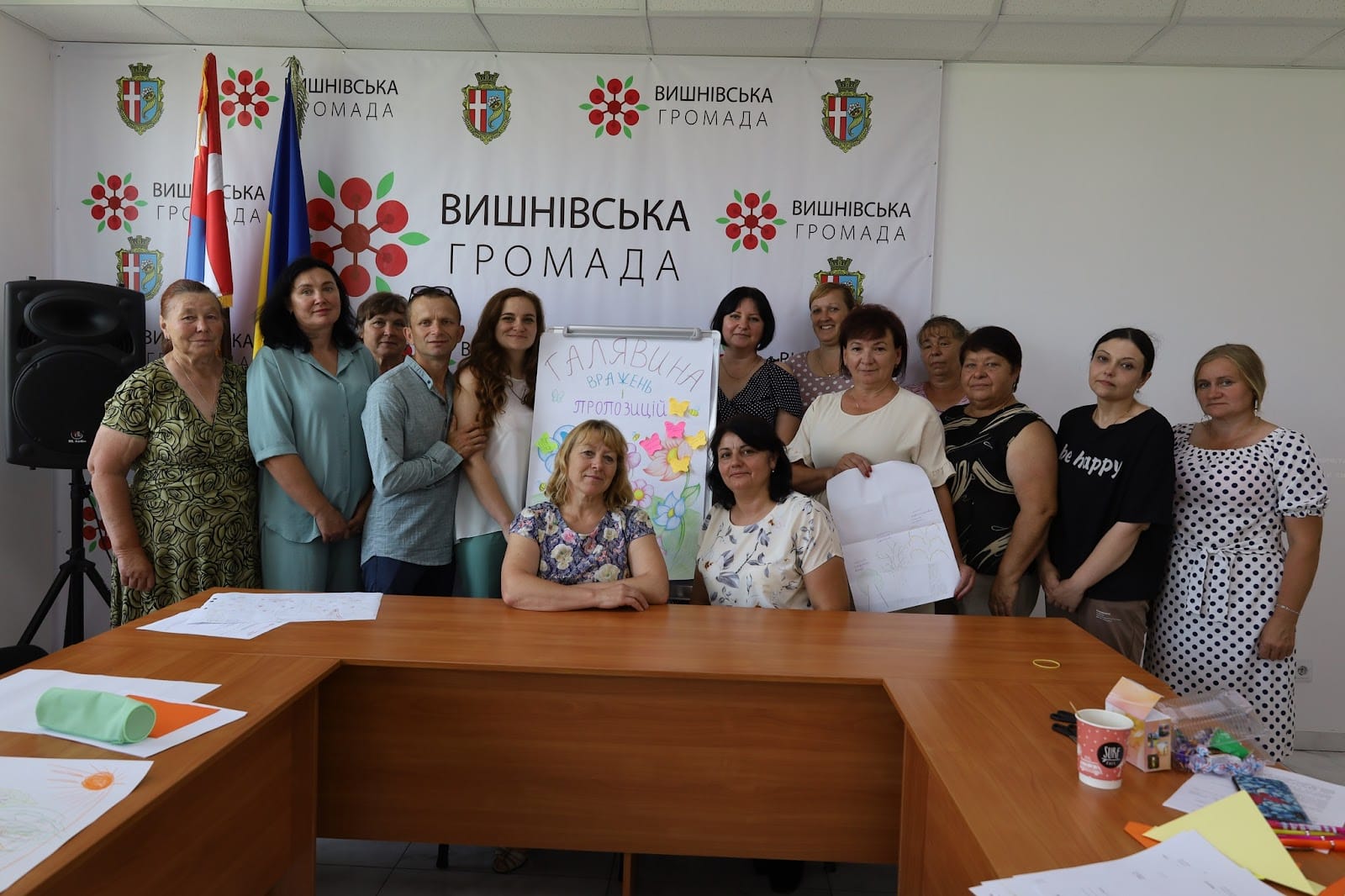
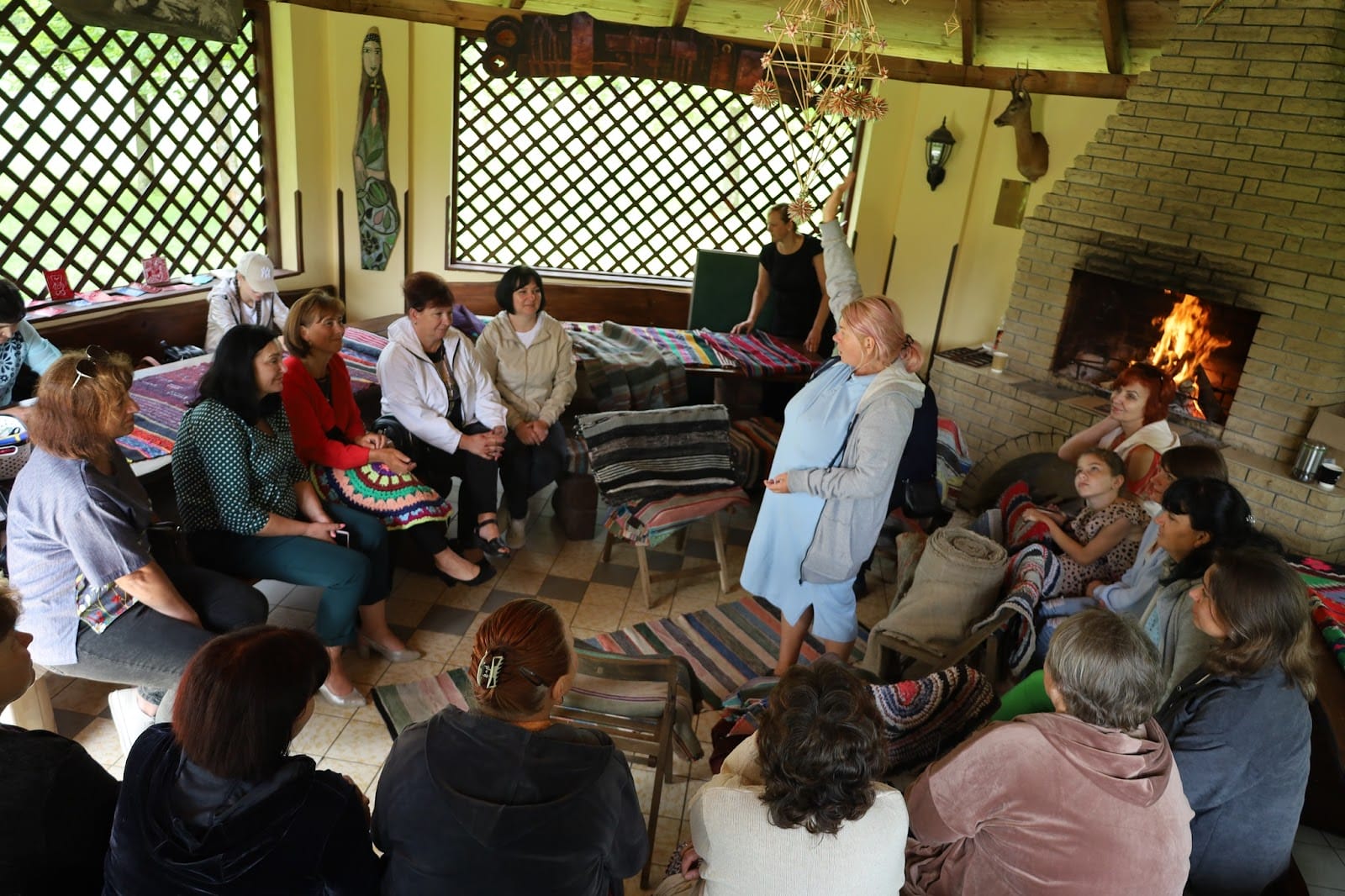
The Vyshniv rural territorial community actively involves its residents in making power decisions, especially those from the youth sector. One of the first tools for engaging citizens was the introduction in 2023 of the Participatory Budget (community budget) – a method of determining the expenses of a part of the community’s budget with the help of direct expression of the will of its residents. Everyone had the opportunity to submit their project proposal to the competition.
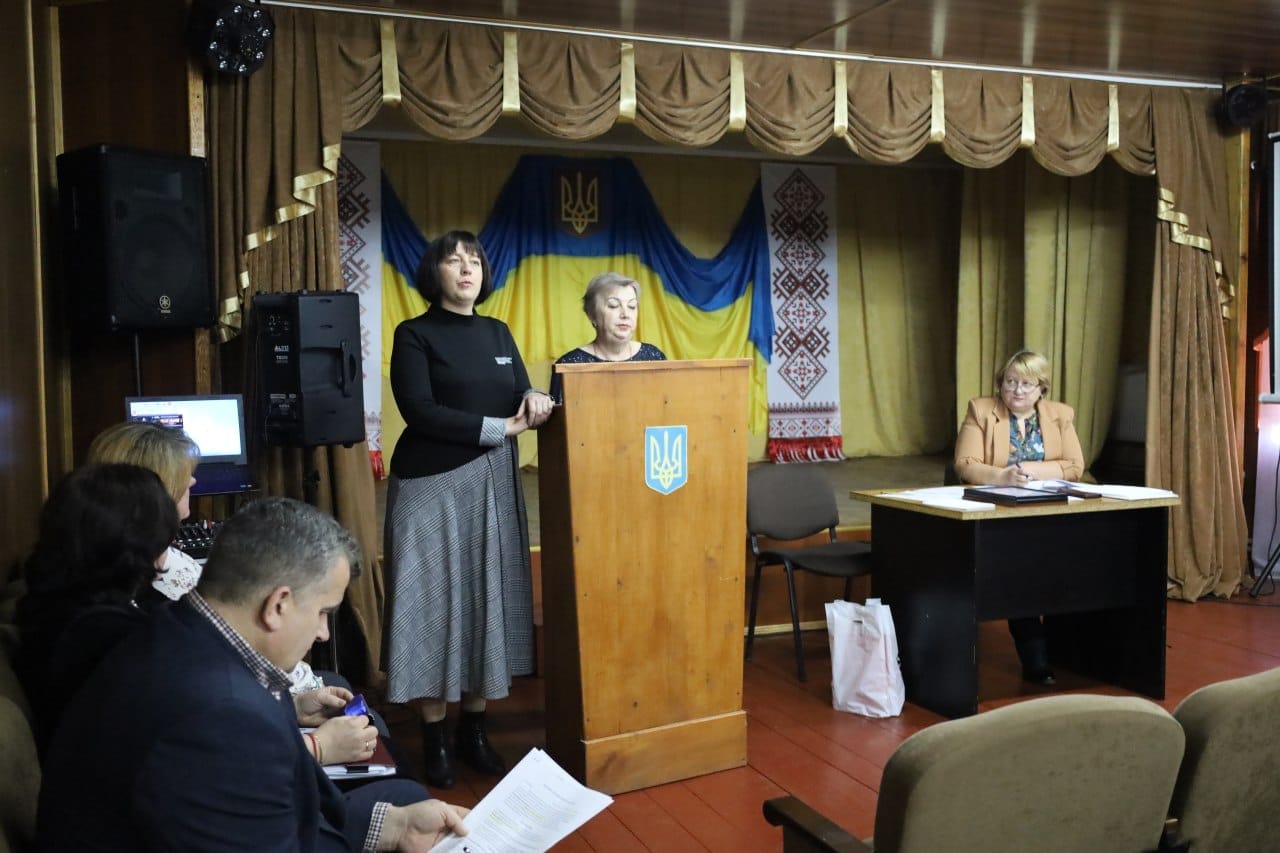
In view of the success of the “participation budget”, the local government decided to organize this competition in the general secondary education institutions of the community. The Participation School Budget (School Public Budget) was launched in March 2024. The project stipulates that the students should offer their ideas on how to change schools for the better and write relevant projects. Later, a voting is held in each educational institution, in which only students can participate. The winners receive funding from the community to implement their initiatives.
The launch of the Participatory School Budget was made possible thanks to cooperation with the non-governmental organization “Volyn Institute of Law” within the framework of the grant “Improving citizen-oriented governance in Volyn”, with the support of the United States Agency for International Development (USAID) and the American people through the USAID HOVERLA Project.
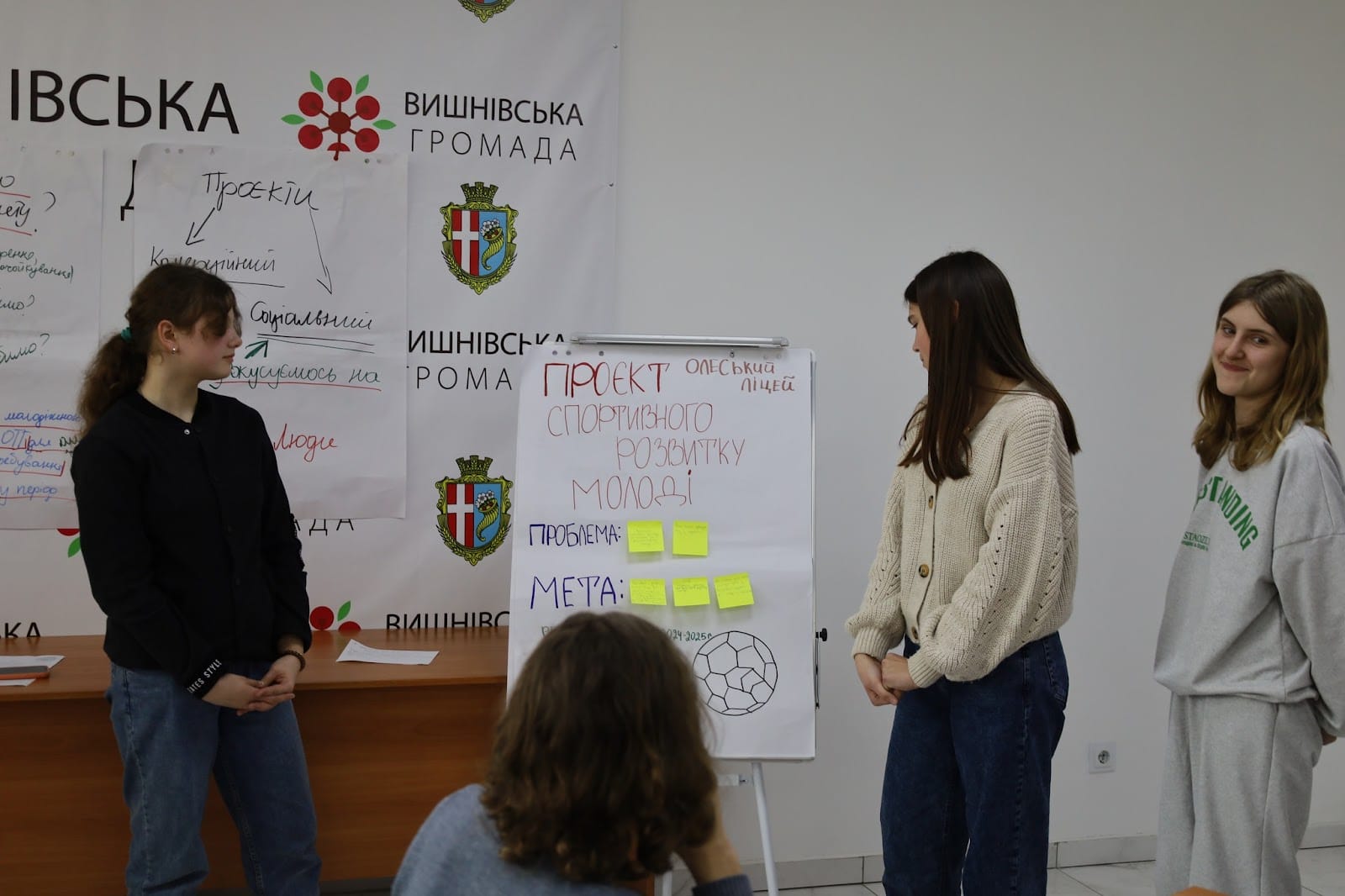
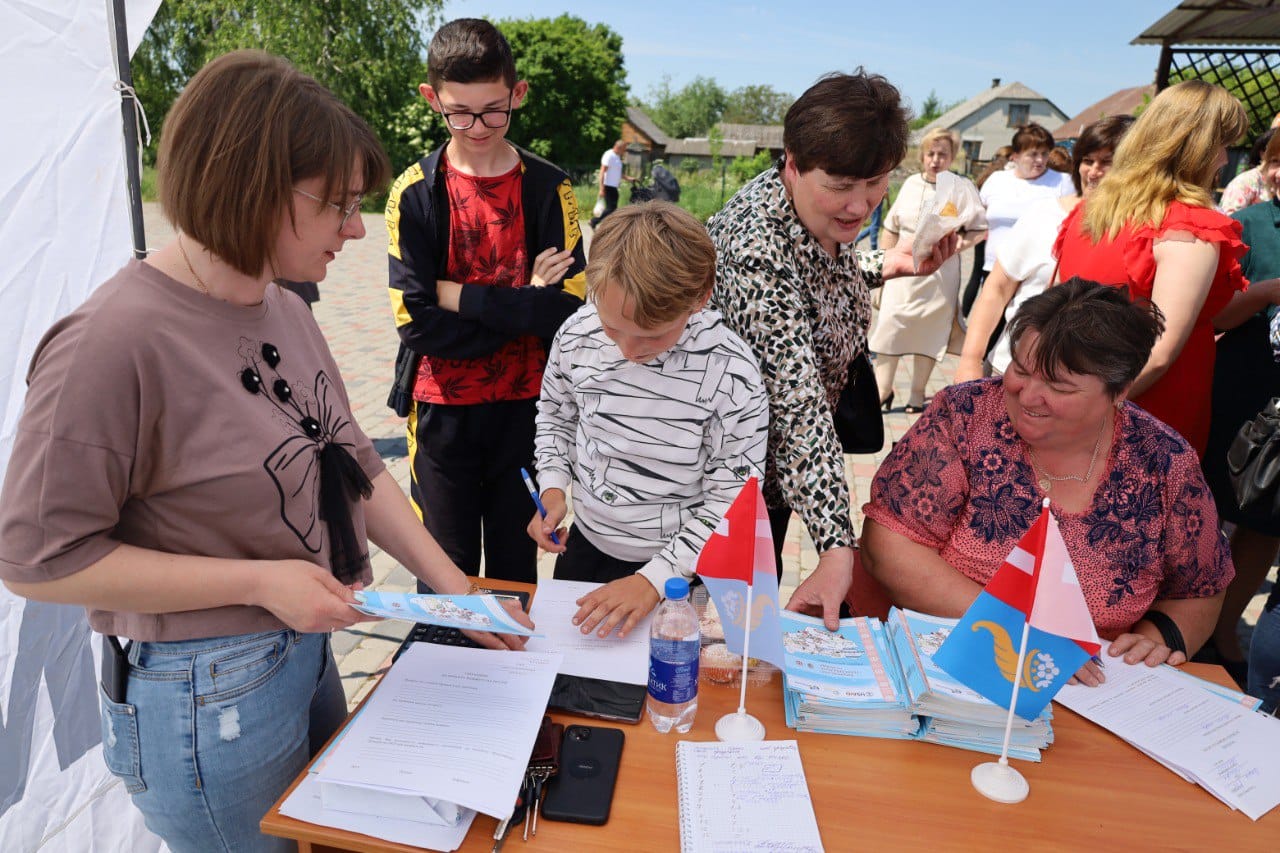
In January 2024, the Vyshniv rural territorial community successfully passed the competitive selection process and became a participant in the “IMPULSE” Project which is implemented by the public organization “Association of Youth Workers of Ukraine” with the support of the United States Agency for International Development (USAID) and the sincere support of the American people through the USAID HOVERLA Project.
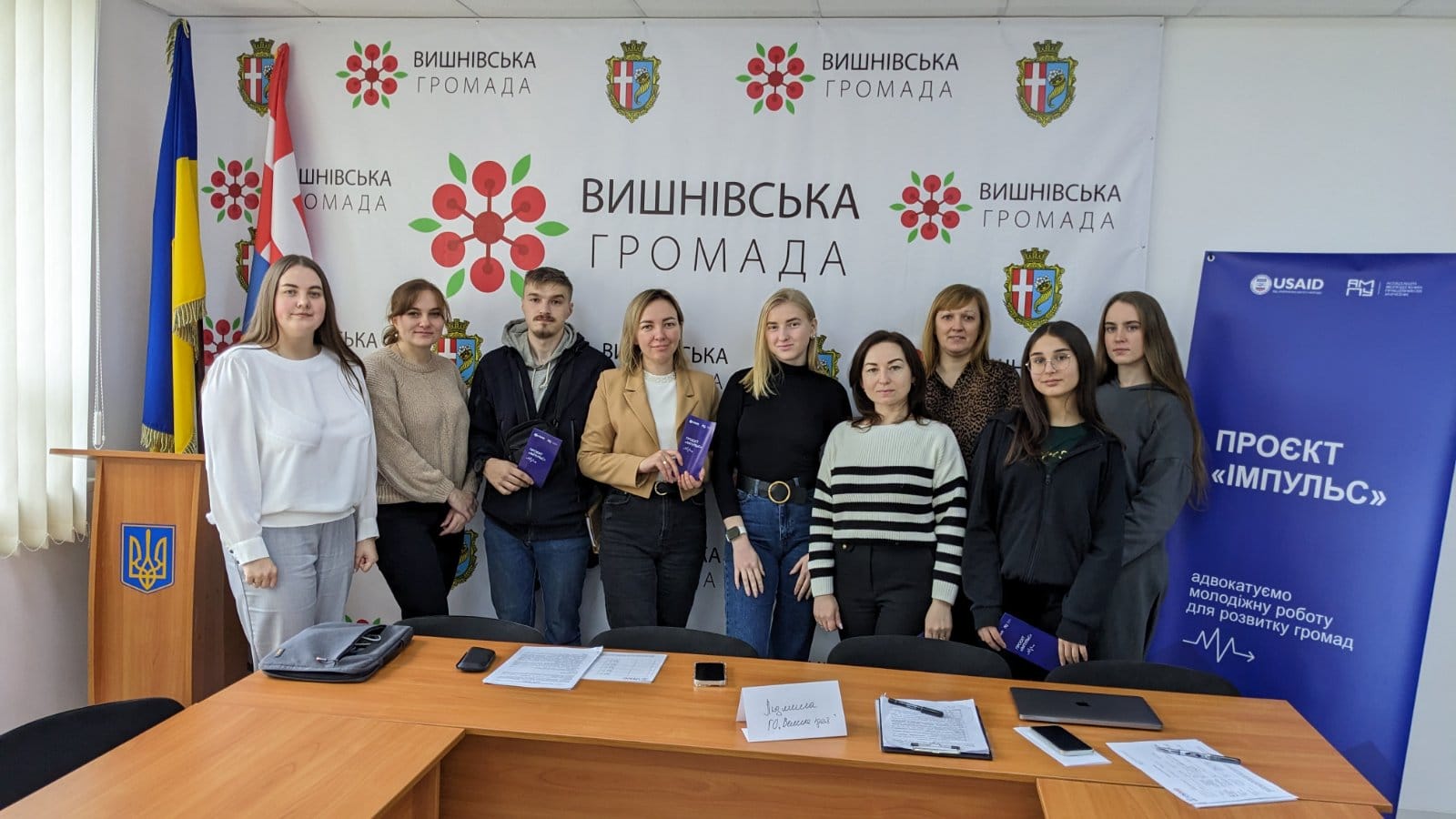
In March 2024, the Vyshniv Village Council and the non-governmental organization “Center for Political Studies” signed a memorandum of cooperation within the framework of the project “Active youth – strong community” with the support of the USAID HOVERLA Project. The subject matter of the Memorandum is the development of cooperation between the community and the NGO “Center for Political Studies” in the implementation of youth policy at the community level with the direct involvement of local youth and forcibly displaced young people.
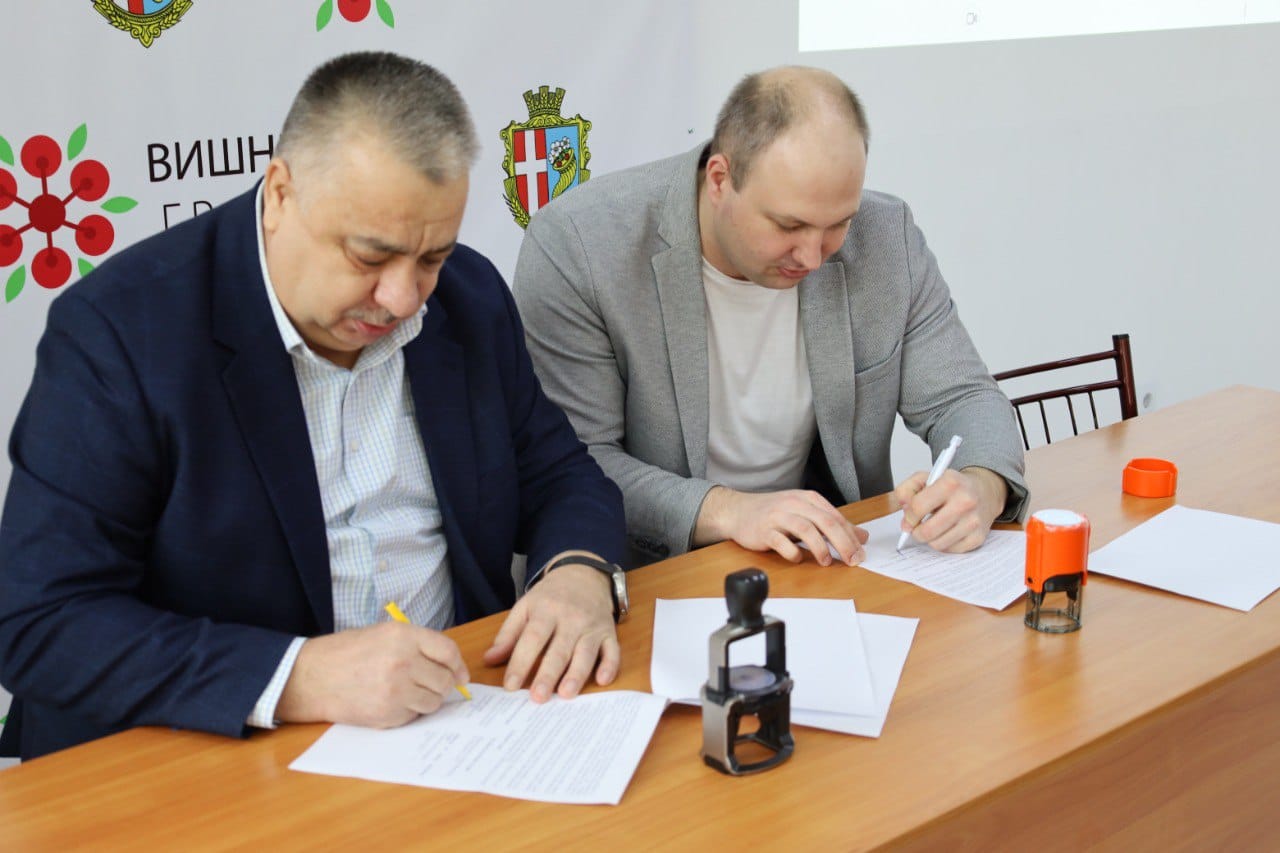
To organize public space, including for youth, in March 2024, the Vyshniv Village Council participated in the competition of partner communities of the USAID HOVERLA Project aimed at creating public spaces for interaction and public activity. The community won the competition and arranged the Center for Public Consultations and Communications “Free Thought”, purchased the necessary furniture and equipment, and carried out renovation work.
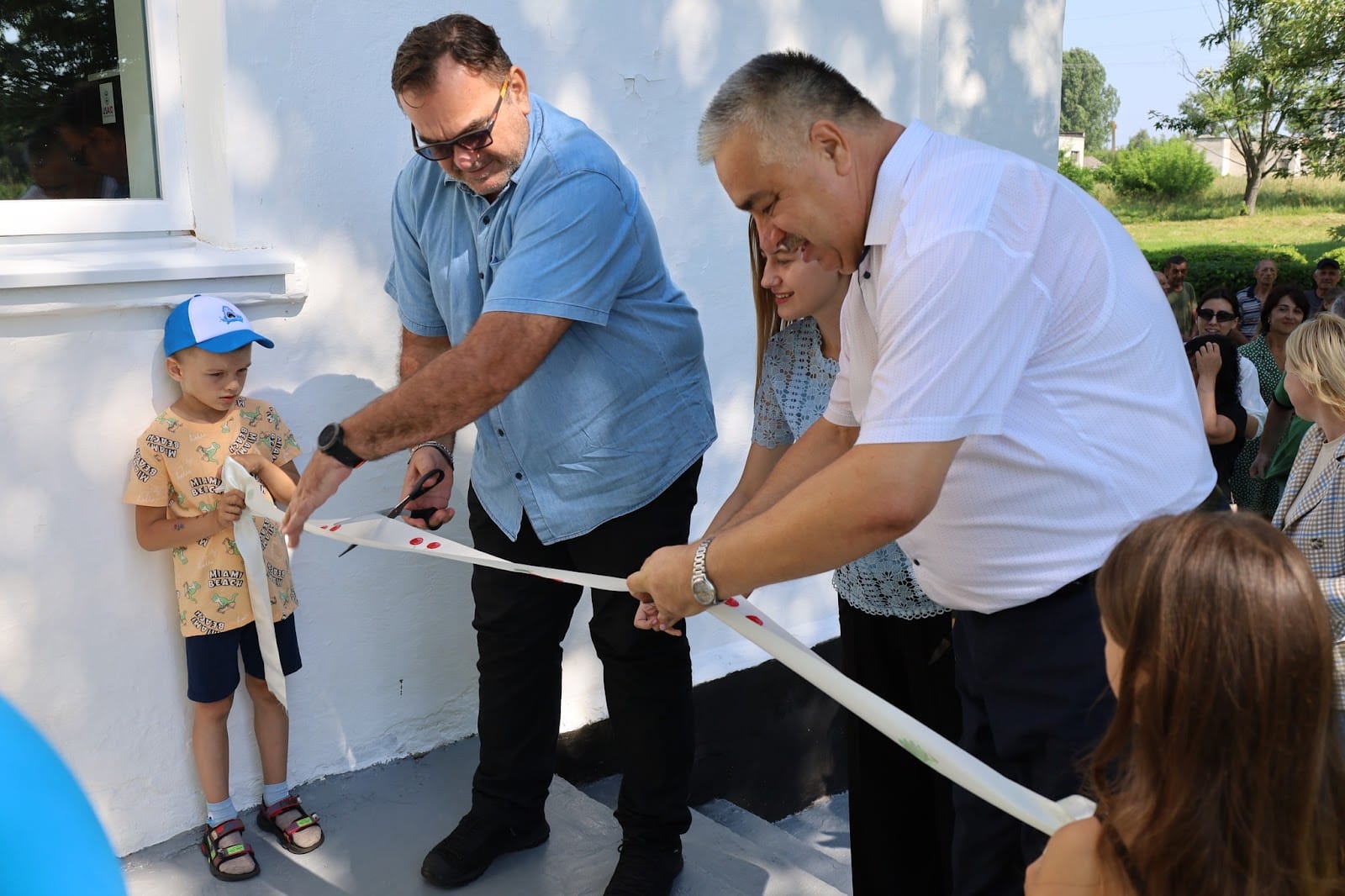
Development Strategy
The development strategy of the Vyshniv rural territorial community has been approved for the period until 2030.
Increasing the economic competitiveness of the community’s territory, digital accessibility, the appropriate level of public service provision and the socio-cultural development of an active community, the development of human capital and improving the quality of life of the population, cross-border cooperation, and energy efficiency were identified as strategic goals.
Since 2022, the Vyshniv Village Council has been a participant in the E-Governance for Accountability and Participation Program (EGAP), which is financed by Switzerland and implemented by the Eastern Europe Foundation in cooperation with the Ministry of Digital Transformation of Ukraine and the Innovabridge Foundation. Thanks to the Program, in 2022, the public space “Activity Center of Residents of the Vyshniv Rural Territorial Community” was opened (a room with special technical equipment and comfortable furniture), where residents can gather and discuss topical issues of community development.
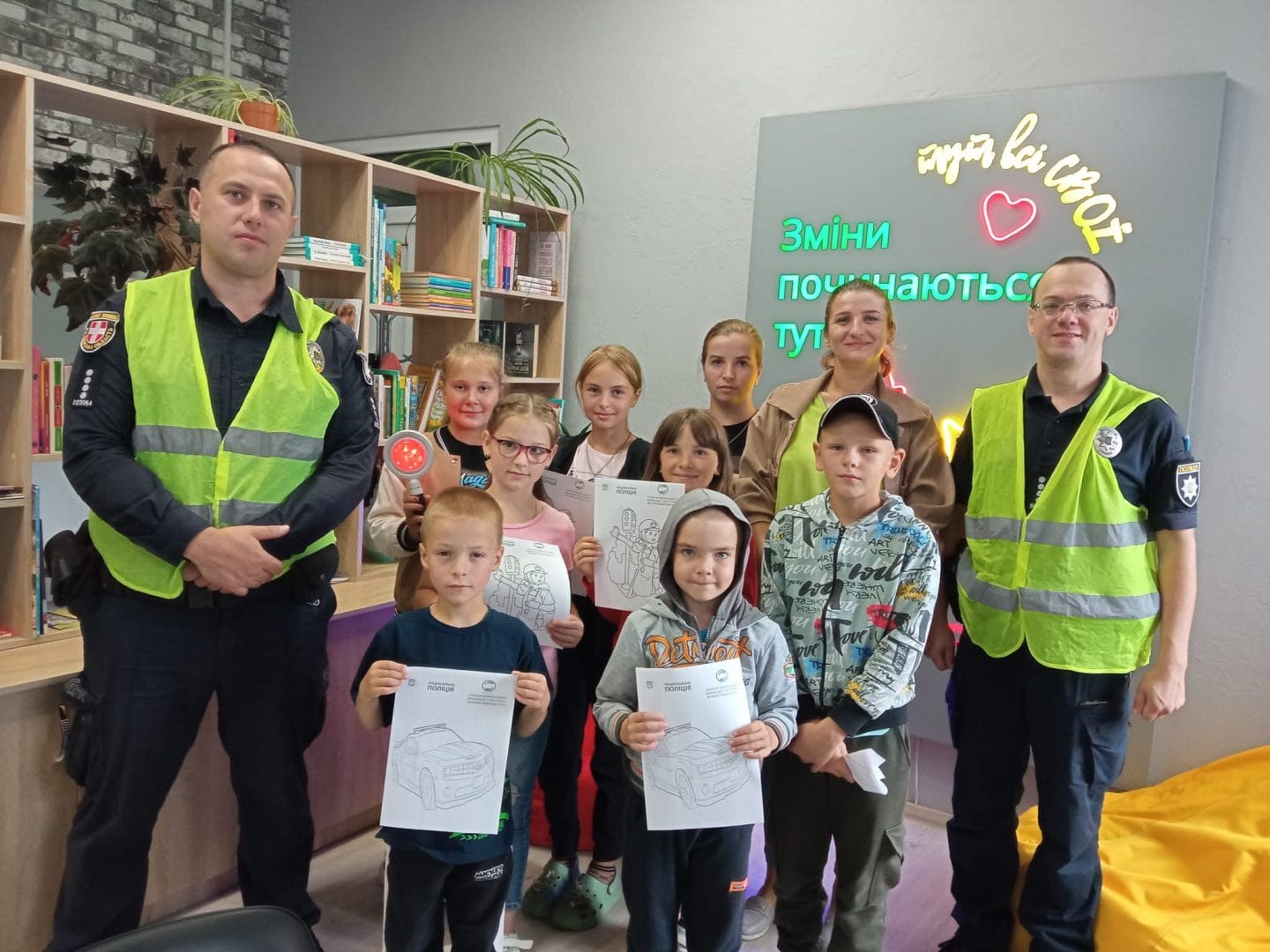
The Vyshniv Village Council is also a participant in the Project “Cooperation in the Restoration of Communities”, which is implemented by the non-governmental organization “Institute of Peace and Understanding” with the support of the USAID HOVERLA Project. The full-scale russian invasion of Ukraine caused a number of challenges that negatively affected social relations in communities.
